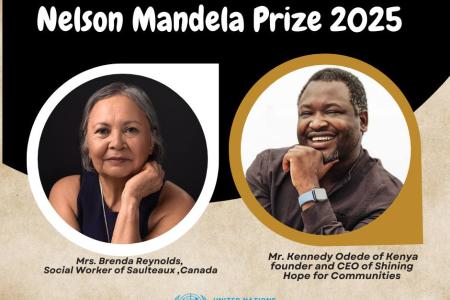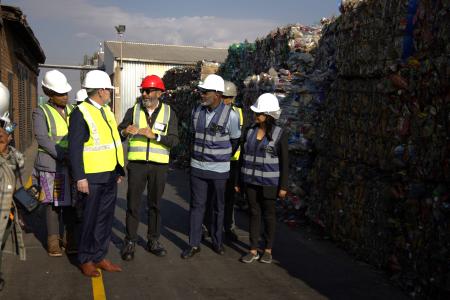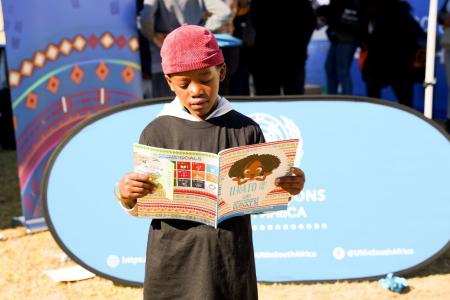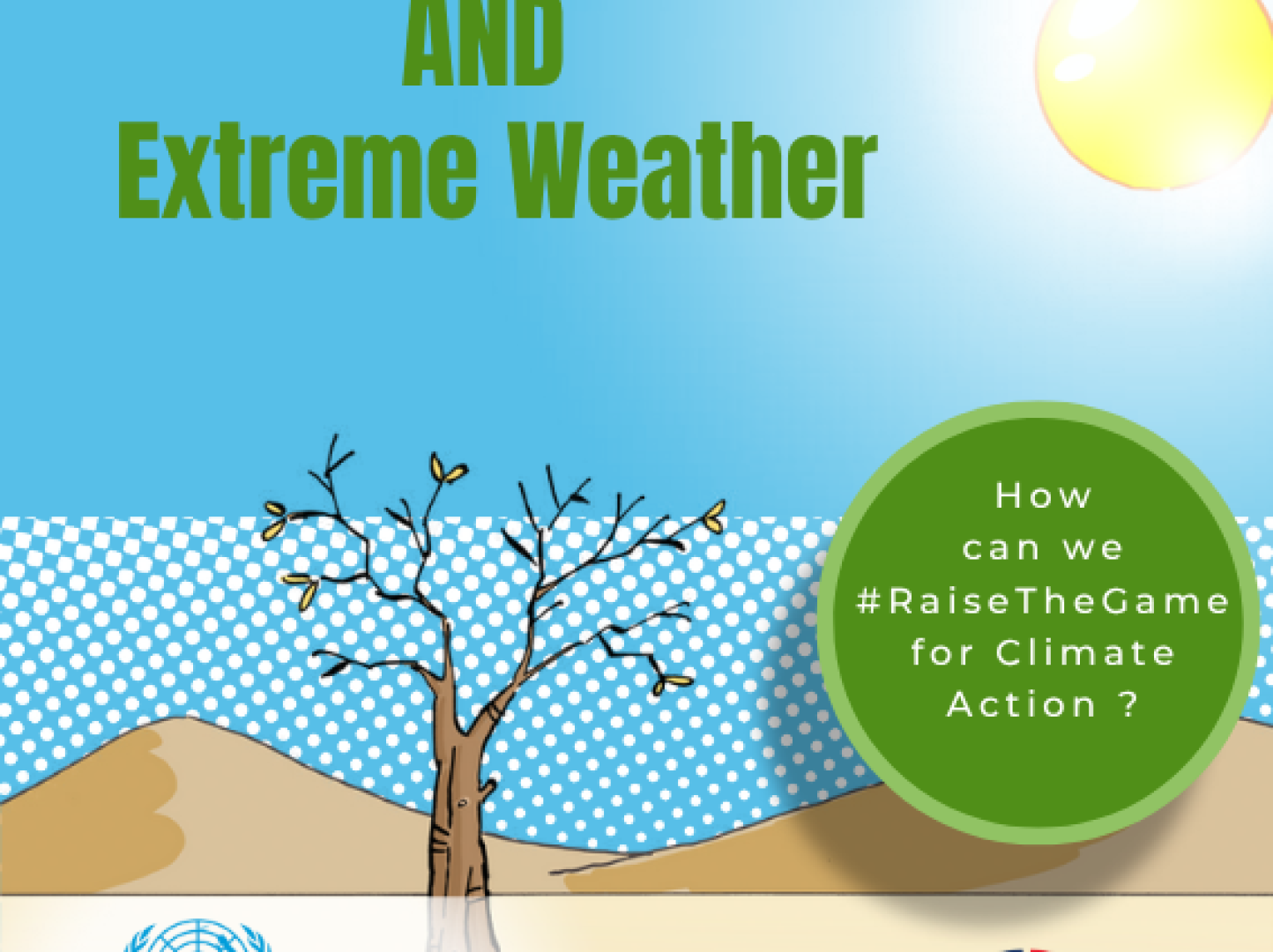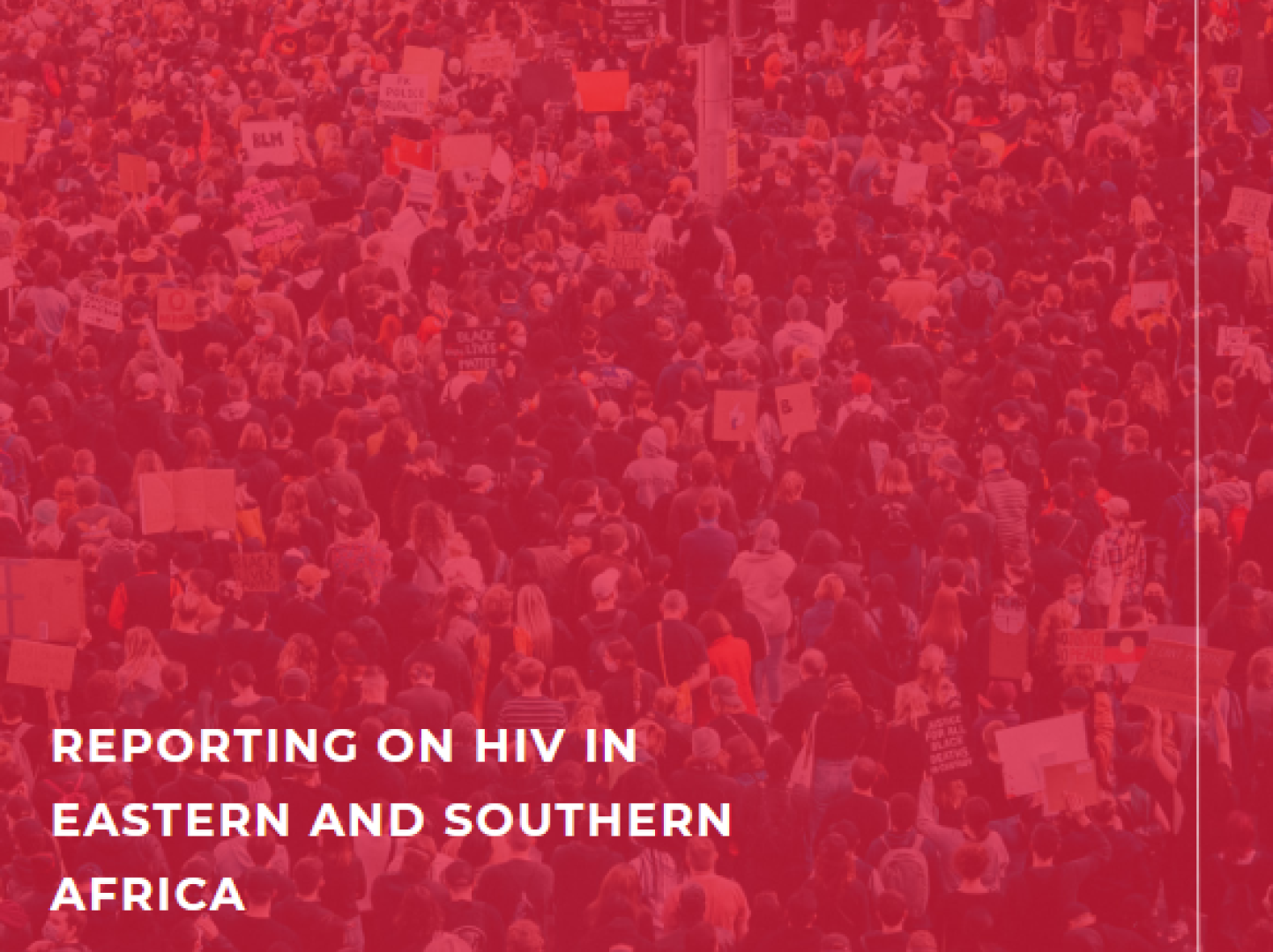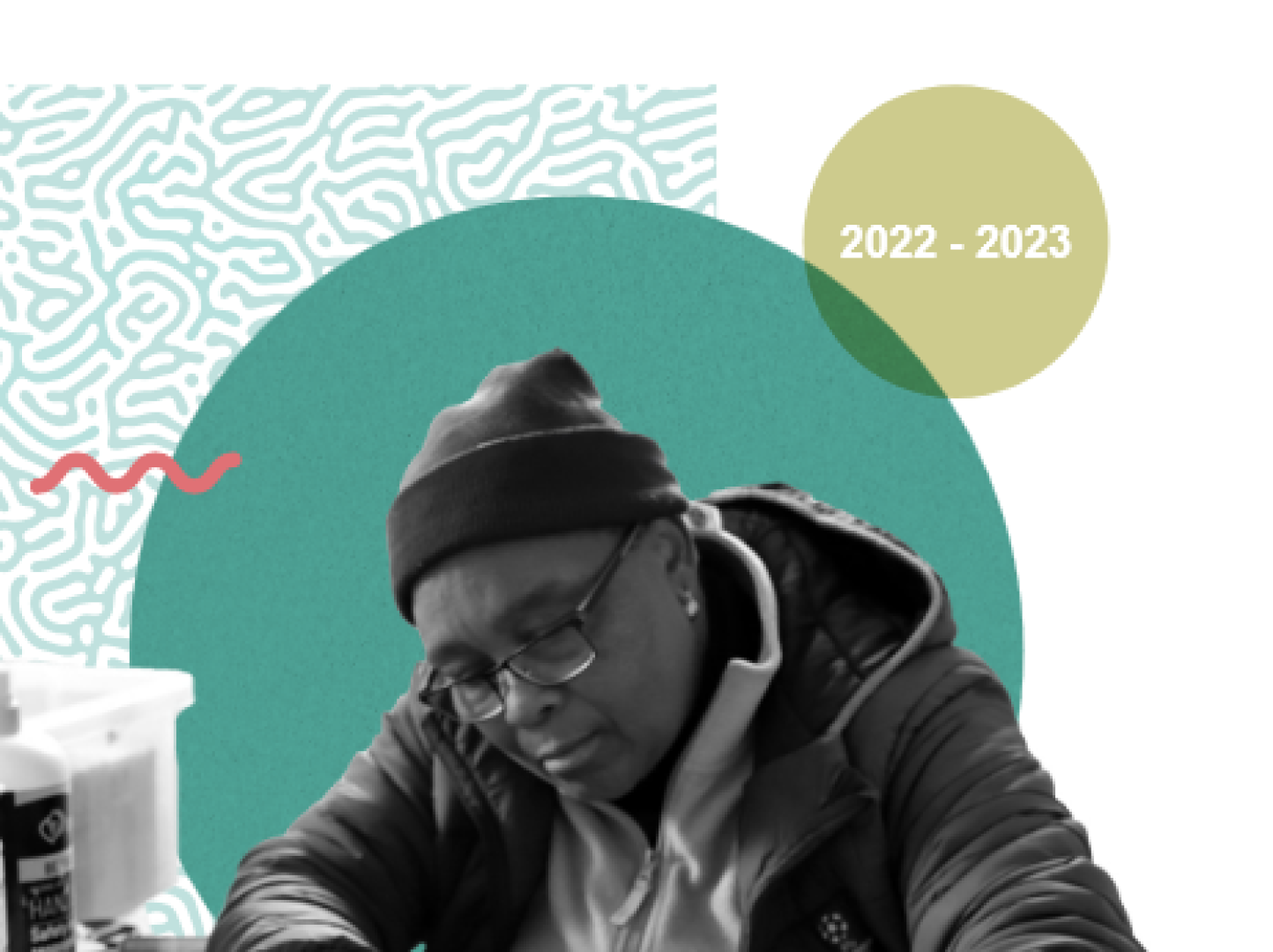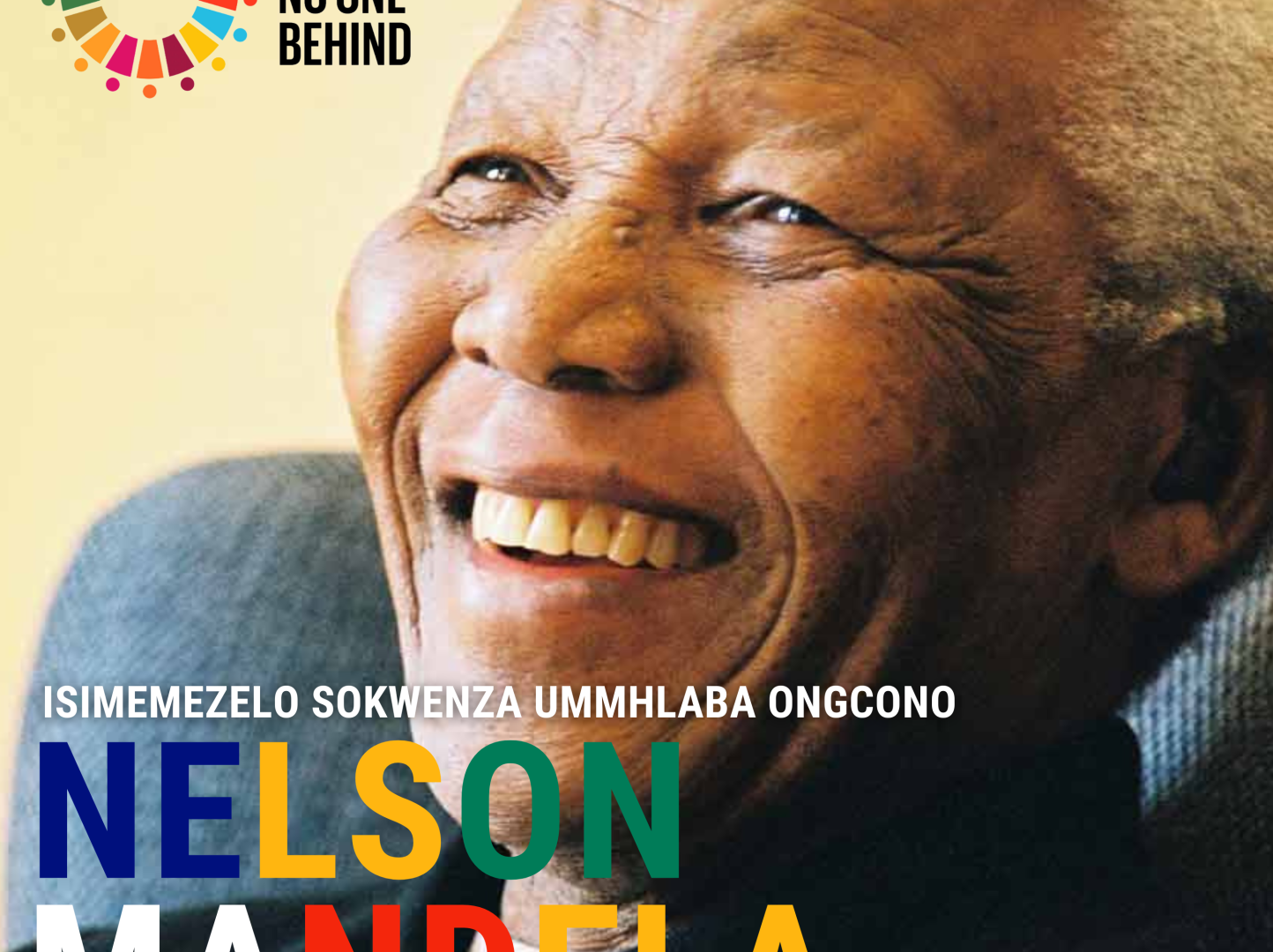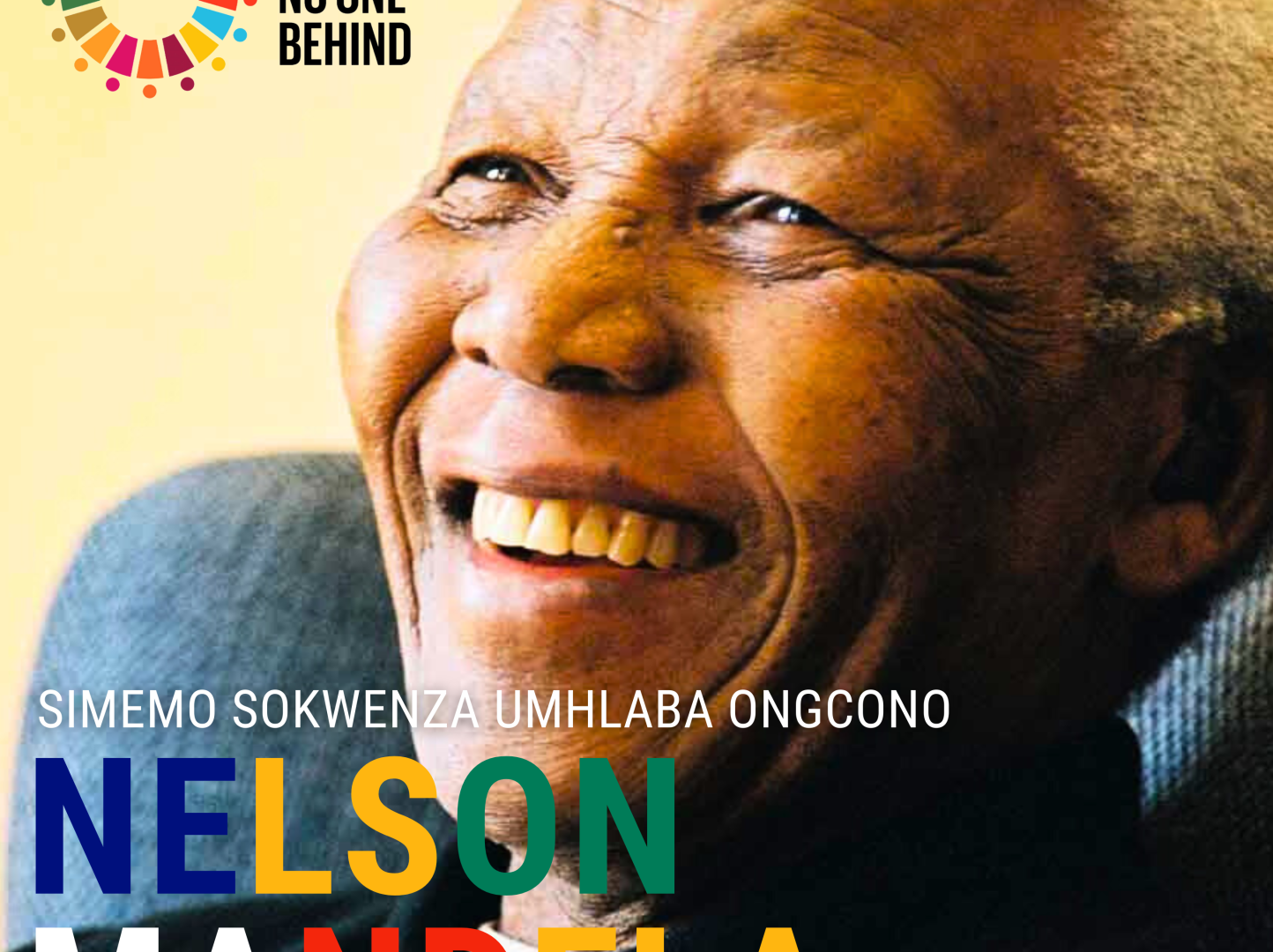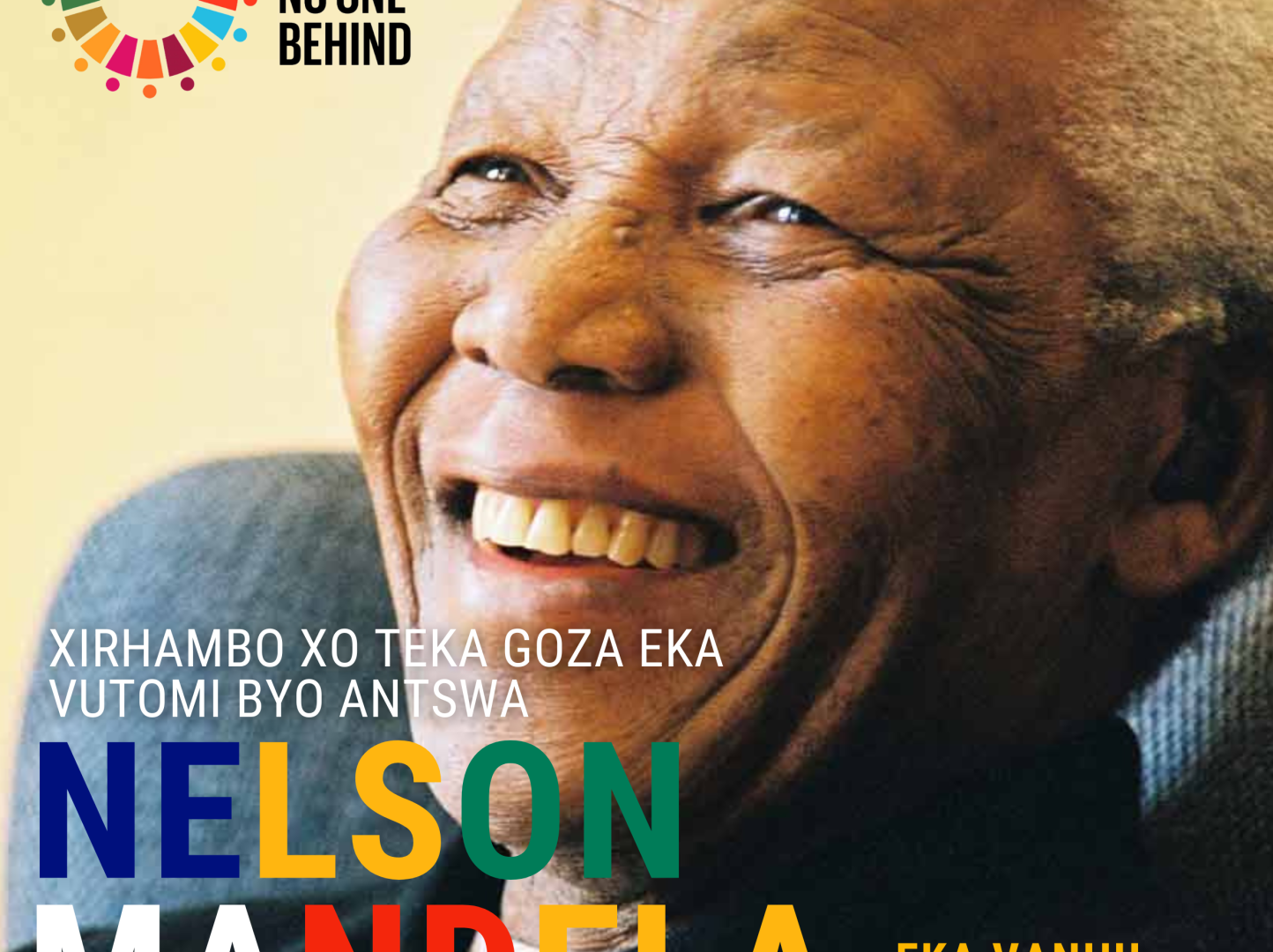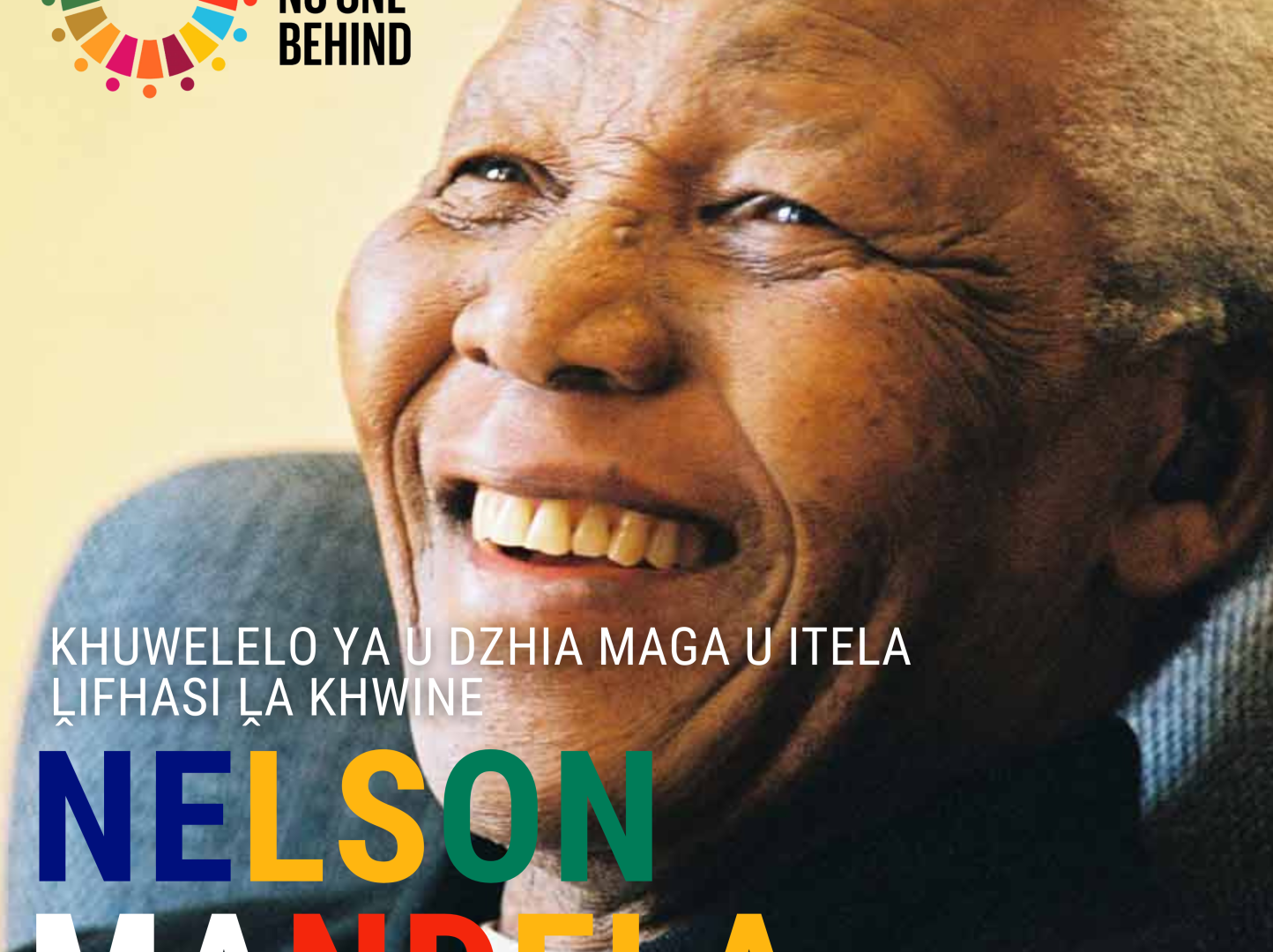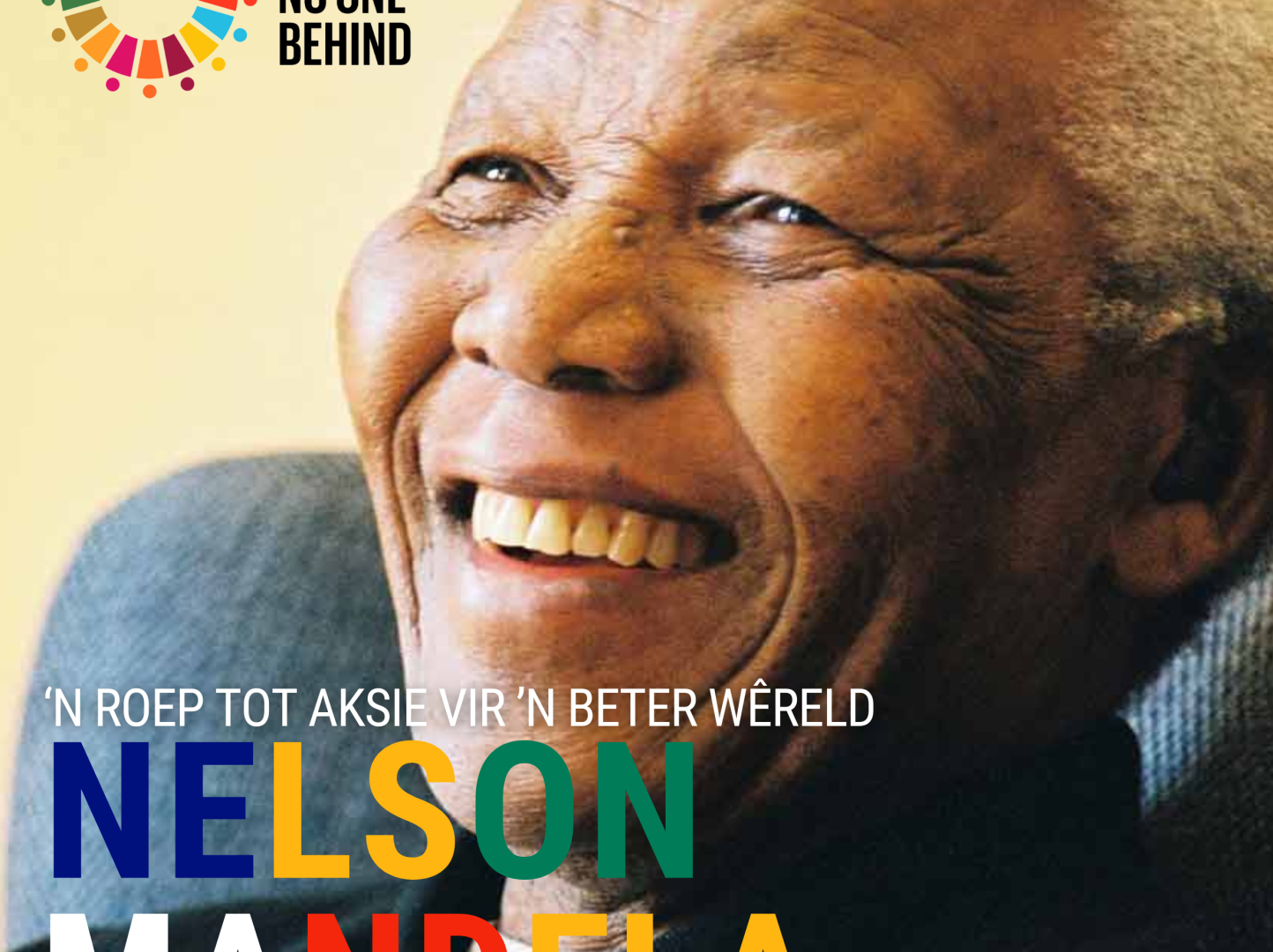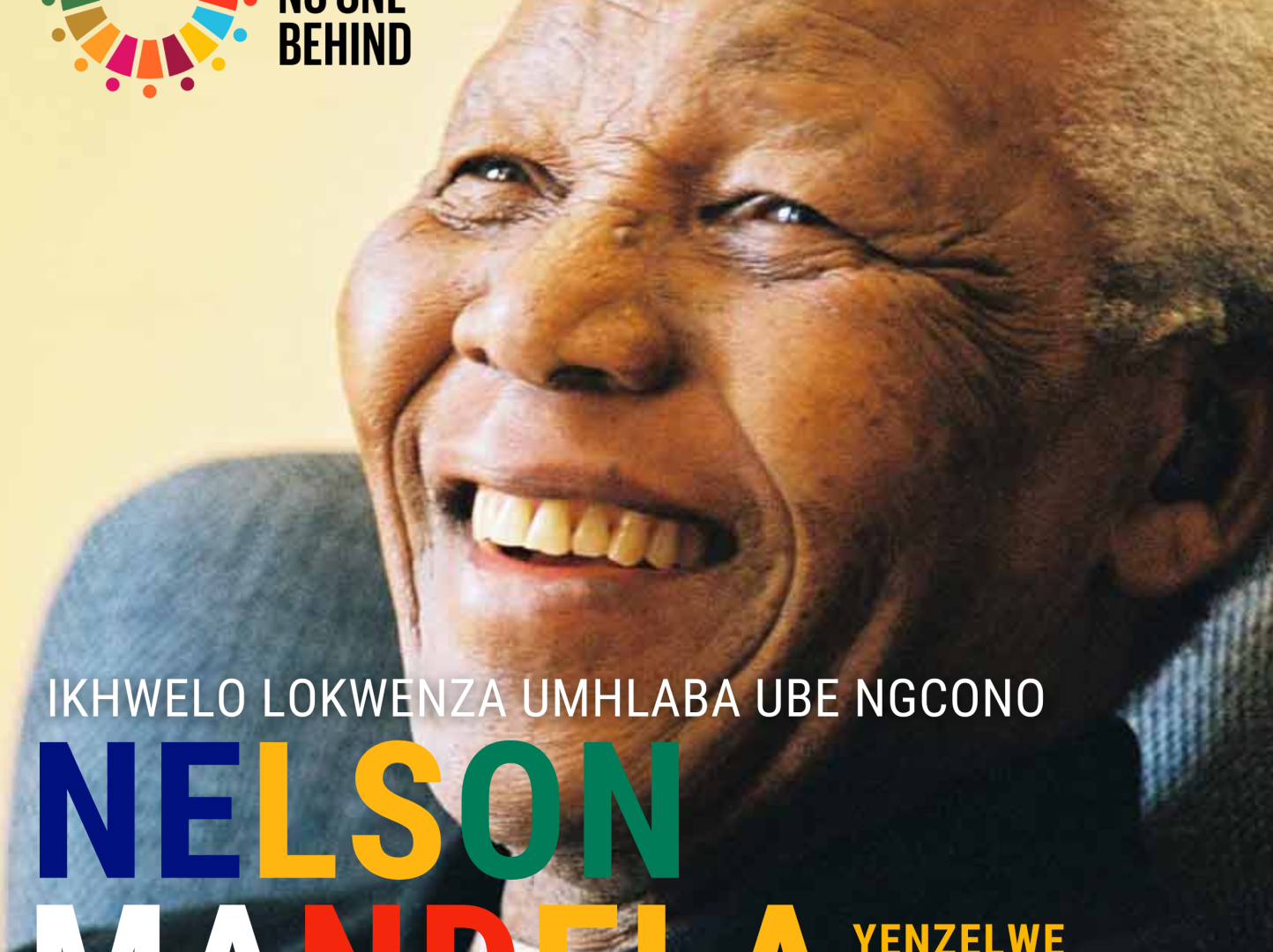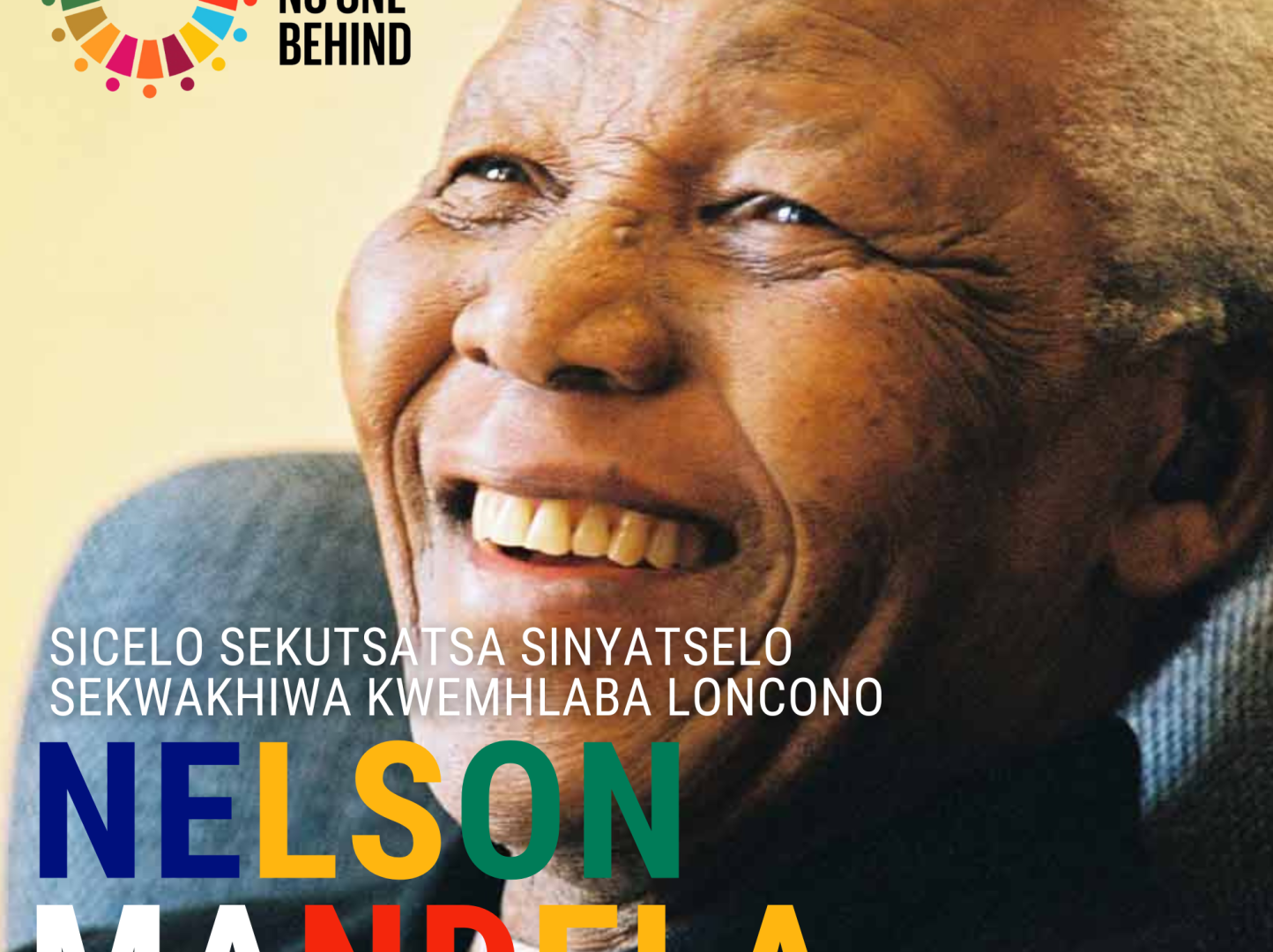Latest
Story
14 July 2025
United Nations Selects Indigenous Social Worker from Canada, Kenyan Social Entrepreneur to Be Awarded 2025 UN Nelson Mandela Prize
Learn more
Press Release
11 July 2025
Yu Yu UNFPA Representative in South Africa speaks to Ubuntu Radio about World Population Day 2025
Learn more
Video
10 July 2025
Launch of the 2025 Global AIDS Update Report
Learn more
Latest
The Sustainable Development Goals in South Africa
The Sustainable Development Goals are a global call to action to end poverty, protect the earth’s environment and climate, and ensure that people everywhere can enjoy peace and prosperity. These are the goals the UN is working on in South Africa:
Story
04 October 2023
Women owning the ‘menstrual economy’: South African entrepreneur changing lives through a thriving sanitary pads manufacturing venture
Over the past few years, there have been concerted efforts to lift the veil on the taboo and stigma around menstrual hygiene. Not only have there been calls for sanitary products to be freely available but there have been conversations around who owns the means of production of these essential products.
Lindiwe Nkuna-Kgopa, 40, started thinking about putting her ring in the hat of what she calls the menstrual economy in 2015 after following these conversations and realized that in South Africa there were no women-owned, large-scale, manufacturers of sanitary products that can compete with the big suppliers. This was the start of Lindiwe Sanitary Pads which today not only sells to individual customers but supplies the South African government’s National Sanitary Dignity Programme in four provinces. In 2022 alone Lindiwe Sanitary Pads reached 10 000 girls, supplying them with a year’s supply of sanitary pads through the government’s programme, combatting period poverty. “When I started Lindiwe Sanitary Pads I felt it was unfair that women are only end-users of sanitary pads and decided we needed to be active in the menstrual economy. We need to be part of the entire value chain. Menstruation is a huge economy and it’s interesting that with all the taboos and stigma that have existed around menstruation, when it comes to the boardroom where the rands and cents are counted, suddenly men can talk about periods and get involved in the manufacturing and selling of pads,” says Nkuna-Kgopa. “Initially when I approached funders they’d turn down my applications because they said I didn’t have a manufacturing background. I had never even set foot in a factory! So they’d said ‘you don’t have the technical know-how. You are unbankable!’’ she says. An entrepreneur at heart, having previously dabbled in marketing and accounting, Nkuna-Kgopa took the rejection in her stride and decided to build the profile of a reputable sanitary pads manufacturer. When Lindiwe Sanitary pads started in 2018 the business focused on branding, packaging, and distributing sanitary pads purchased from an external manufacturer. But what the entrepreneur quickly learned is that being product-ready and having greater access to markets is costly and requires knowledge. UN Women South Africa Multi-Country Office (SAMCO), supported by NAMA Women Advancement, implemented a series of business coaching and mentoring workshops that equipped Nkuna-Kgopa and other businesswomen with the essential skills for running profitable and sustainable businesses. She is also one of the entrepreneurs on UN Women’s Buy From Women platform, which links clients who want to procure from women-owned entrepreneurs with such suppliers. “The process for getting your product ready, running it through the necessary tests, and meeting potential big clients is quite expensive. For example, traveling to meet a potential big client in Cape Town, at your own expense, is quite demanding. That’s why the programs run by UN Women for women entrepreneurs are invaluable. They trained us then put us in spaces where we can create linkages with market-potentials and eventually take advantage ,’’ says Nkuna-Kgopa. She was one of the women entrepreneurs sponsored by UN Women SAMCO through NAMA Women Advancement’s support, to attend the Africa Women in Trade Conference and Expo in Cape Town in 2022. This is where Nkuna-Kgopa met a contact who introduced her to a major client that not only bought a large supply of Lindiwe Sanitary Pads products but will also be pushing out the products into the rest of the African continent. Additionally, the contact enabled her to meet clients who took an interest in the business and provided letters of intent that have unlocked funding for Lindiwe Sanitary Pads to build a 3 500sqm factory. Additionally, her business is in the process of procuring what will be South Africa’s second-largest sanitary pads manufacturing machine which will produce 850 units per minute. Lindiwe Sanitary Pads currently employs 92 women in its peak seasons and 16 women in the quieter production periods. Nkuna-Kgopa highlights that automating the manufacturing process will not kill these jobs but grow the company’s output and revenue, allowing these women to be more securely and sustainably employed in other areas of the company. The machine is much-needed as the business expands its reach from supplying wholesalers and independent pharmacies to supplying two major retailers ’house brands. UN Women SAMCO has partnered with the South Africa Department of Women, Youth, and People with Disabilities to enhance the capacity of women-owned enterprises in the Sanitary Dignity value chain. The Sanitary Dignity Implementation Framework (SDIF) aims to ensure dignified menstruation management while promoting women’s economic empowerment.
Lindiwe Nkuna-Kgopa, 40, started thinking about putting her ring in the hat of what she calls the menstrual economy in 2015 after following these conversations and realized that in South Africa there were no women-owned, large-scale, manufacturers of sanitary products that can compete with the big suppliers. This was the start of Lindiwe Sanitary Pads which today not only sells to individual customers but supplies the South African government’s National Sanitary Dignity Programme in four provinces. In 2022 alone Lindiwe Sanitary Pads reached 10 000 girls, supplying them with a year’s supply of sanitary pads through the government’s programme, combatting period poverty. “When I started Lindiwe Sanitary Pads I felt it was unfair that women are only end-users of sanitary pads and decided we needed to be active in the menstrual economy. We need to be part of the entire value chain. Menstruation is a huge economy and it’s interesting that with all the taboos and stigma that have existed around menstruation, when it comes to the boardroom where the rands and cents are counted, suddenly men can talk about periods and get involved in the manufacturing and selling of pads,” says Nkuna-Kgopa. “Initially when I approached funders they’d turn down my applications because they said I didn’t have a manufacturing background. I had never even set foot in a factory! So they’d said ‘you don’t have the technical know-how. You are unbankable!’’ she says. An entrepreneur at heart, having previously dabbled in marketing and accounting, Nkuna-Kgopa took the rejection in her stride and decided to build the profile of a reputable sanitary pads manufacturer. When Lindiwe Sanitary pads started in 2018 the business focused on branding, packaging, and distributing sanitary pads purchased from an external manufacturer. But what the entrepreneur quickly learned is that being product-ready and having greater access to markets is costly and requires knowledge. UN Women South Africa Multi-Country Office (SAMCO), supported by NAMA Women Advancement, implemented a series of business coaching and mentoring workshops that equipped Nkuna-Kgopa and other businesswomen with the essential skills for running profitable and sustainable businesses. She is also one of the entrepreneurs on UN Women’s Buy From Women platform, which links clients who want to procure from women-owned entrepreneurs with such suppliers. “The process for getting your product ready, running it through the necessary tests, and meeting potential big clients is quite expensive. For example, traveling to meet a potential big client in Cape Town, at your own expense, is quite demanding. That’s why the programs run by UN Women for women entrepreneurs are invaluable. They trained us then put us in spaces where we can create linkages with market-potentials and eventually take advantage ,’’ says Nkuna-Kgopa. She was one of the women entrepreneurs sponsored by UN Women SAMCO through NAMA Women Advancement’s support, to attend the Africa Women in Trade Conference and Expo in Cape Town in 2022. This is where Nkuna-Kgopa met a contact who introduced her to a major client that not only bought a large supply of Lindiwe Sanitary Pads products but will also be pushing out the products into the rest of the African continent. Additionally, the contact enabled her to meet clients who took an interest in the business and provided letters of intent that have unlocked funding for Lindiwe Sanitary Pads to build a 3 500sqm factory. Additionally, her business is in the process of procuring what will be South Africa’s second-largest sanitary pads manufacturing machine which will produce 850 units per minute. Lindiwe Sanitary Pads currently employs 92 women in its peak seasons and 16 women in the quieter production periods. Nkuna-Kgopa highlights that automating the manufacturing process will not kill these jobs but grow the company’s output and revenue, allowing these women to be more securely and sustainably employed in other areas of the company. The machine is much-needed as the business expands its reach from supplying wholesalers and independent pharmacies to supplying two major retailers ’house brands. UN Women SAMCO has partnered with the South Africa Department of Women, Youth, and People with Disabilities to enhance the capacity of women-owned enterprises in the Sanitary Dignity value chain. The Sanitary Dignity Implementation Framework (SDIF) aims to ensure dignified menstruation management while promoting women’s economic empowerment.
1 of 5
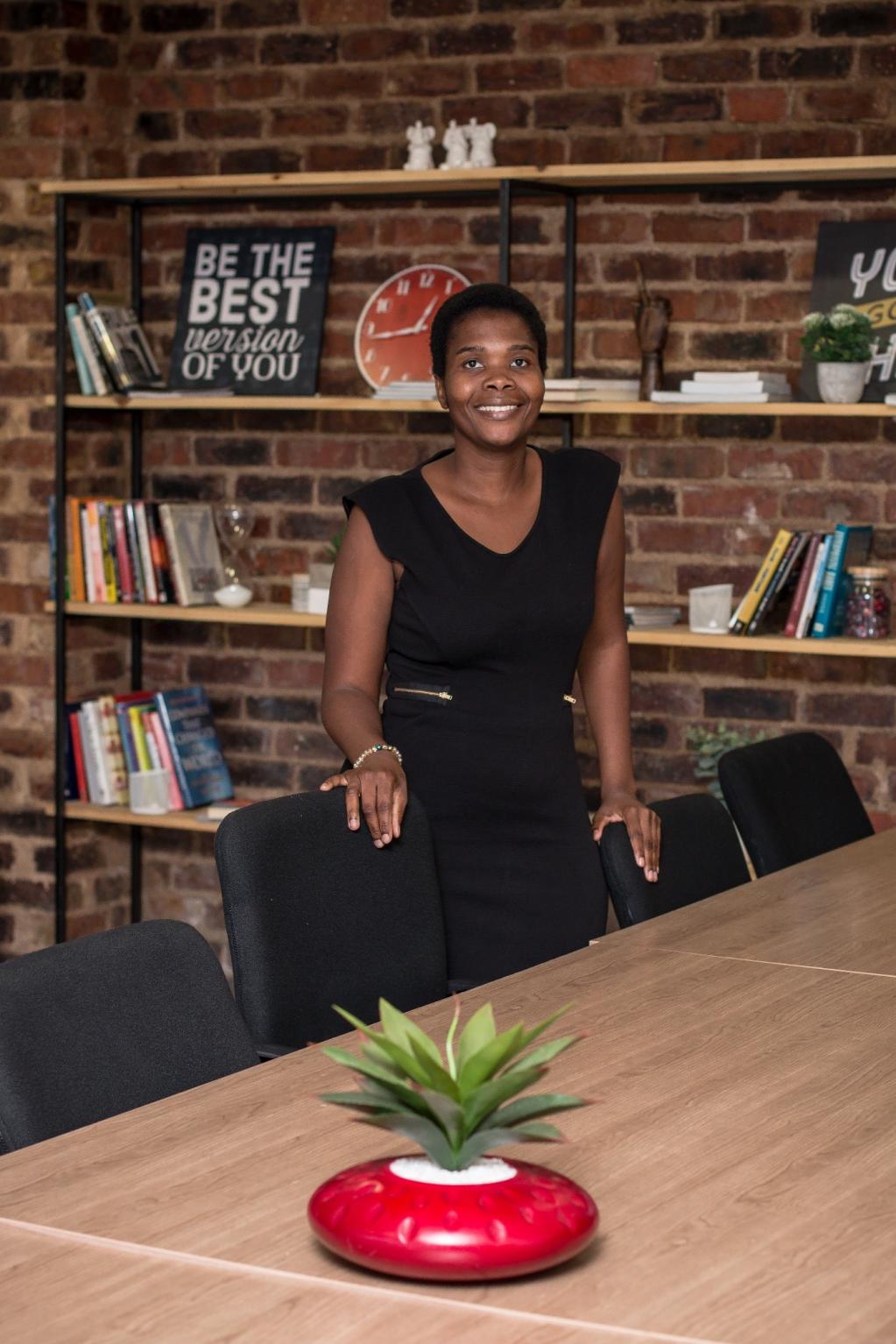
Story
04 November 2024
Agrigreat Soiltech: Youth driven initiatives for a future in sustainable agriculture, organic solitech solutions for repairing damaged soil
In order to foster community-wide innovation and sustainability, more young women should take the lead in community sustainability initiatives. Greater participation of young women in sustainability projects like Agrigreat Soiltech can improve the quality and longevity of solutions to environmental problems, while simultaneously advancing gender parity, empowering women economically, and helping communities overcome poverty. Meet 23-year-old, Buyiswa Twala, founder of Agrigreat Soiltech and Envirocare, a multiple award-winning lab that uses biowaste gathered from townships with minimal service delivery. The lab’s composts and fertilizers standout due to their organic composition and their proven ability to combat soil erosion and desertification. Ultimately, Buyiswa wants this to benefit people all throughout the globe, not only in Africa, by ensuring people have access to nutritious food. “I started out when I was 19 years old. With a few friends, we worked together to build a garden in Tembisa township, an informal settlement in Johannesburg. Although I dropped out of university owing to financial constraints, which prevented me from pursuing my scientific degree further, I overcame these obstacles by conducting my own research, developing my own formulas, and eventually running my own lab. I also had to overcome the difficulty of attracting clients and convincing them to switch from traditional, high-impact products to ones with a smaller environmental footprint. This experience taught me that the agricultural industry is woefully unprepared for the importance of sustainability, and this strengthened my resolve to do more to raise awareness about smart and sustainable agriculture," said Buyiswa.Like many others, Agrigreat Soiltech sees the increasing demand for food as a natural consequence of a growing human population. As a result, the lab needs agricultural practices that won't deplete resources and will be able to feed people in the future. The mission of Agrigreat Soiltech is to find ways to meet the demands of a growing population in a sustainable way. An essential part of industrial farming is preparing the soil. What distinguishes the lab from its competitors is its commitment to finding organic nitrogen sources for fertilizers that do not react too strongly with other natural elements. In the middle of Johannesburg's Alexandra township, Agrigreat Soiltech has established its first waste conversion station, which processes 5 tonnes of waste every month from surrounding townships. After all of South Africa's 500+ townships have their trash converted, she intends to establish a larger facility in 2025.
In addition to her work as a community organizer, Buyiswa is the brains behind the Agrigreat Stem Club in townships. The club's mission is to introduce local youth to science, technology, engineering, and mathematics (STEM) fields and the innovative technologies that are shaping them through activities like science fairs and career fairs, which she hosts in partnership with local banks, engineering firms, and other businesses. An important goal of the United Nations Framework Convention on Climate Change's Gender Action Plan is to increase the representation of women in climate-related decision-making and action by promoting their full, equitable, and meaningful involvement in these processes. More than just a question of social justice, the growing number of environmental catastrophes makes women's participation in conservation efforts a strategic need.Ms. Twala is only one of many young, forward-thinking women who can better South Africa's agriculture industry and boost economic growth.
In addition to her work as a community organizer, Buyiswa is the brains behind the Agrigreat Stem Club in townships. The club's mission is to introduce local youth to science, technology, engineering, and mathematics (STEM) fields and the innovative technologies that are shaping them through activities like science fairs and career fairs, which she hosts in partnership with local banks, engineering firms, and other businesses. An important goal of the United Nations Framework Convention on Climate Change's Gender Action Plan is to increase the representation of women in climate-related decision-making and action by promoting their full, equitable, and meaningful involvement in these processes. More than just a question of social justice, the growing number of environmental catastrophes makes women's participation in conservation efforts a strategic need.Ms. Twala is only one of many young, forward-thinking women who can better South Africa's agriculture industry and boost economic growth.
1 of 5
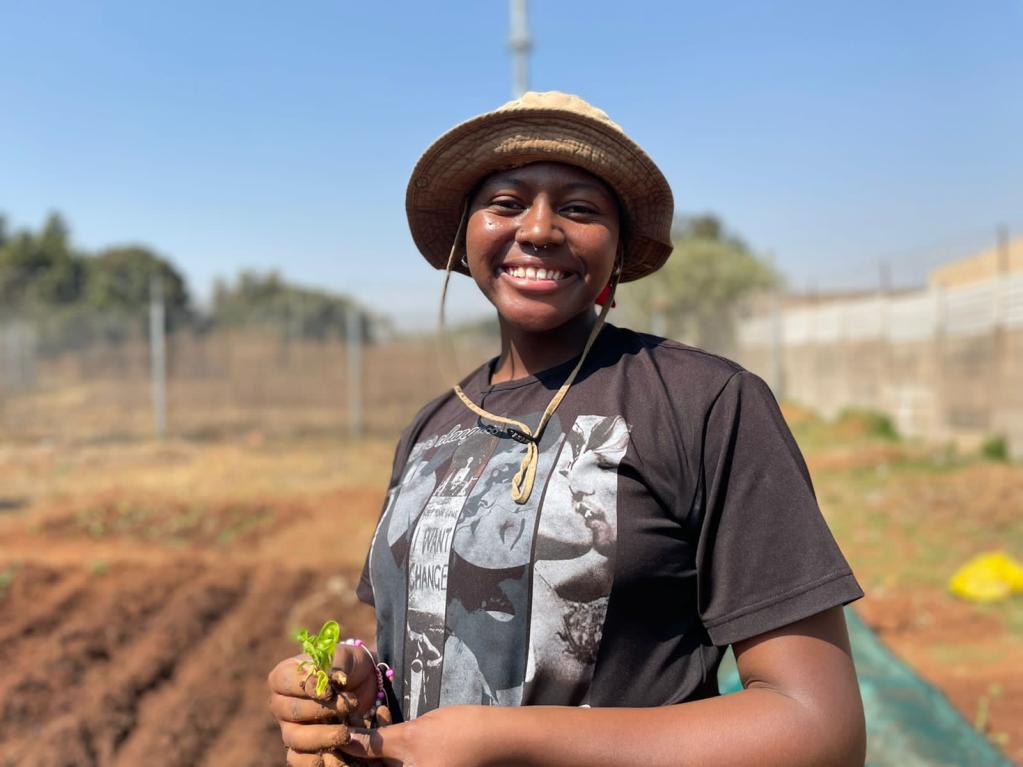
Story
04 February 2025
How mentorship shapes tomorrow’s leaders: My Journey to #AfYWL
By Lisa Rumbidzai SimangoThroughout my life, I have come to appreciate the value of building a supportive network and finding mentors committed to my personal and professional growth. My undergraduate supervisor was instrumental in this journey, connecting me with opportunities, such as the Tag a Life International (TALI) Programme in Zimbabwe. I participated in TALI while pursuing my Master of Science in International Relations, drawn to its mission of advocating for the rights of girls and young women and creating safer spaces for them—values that resonate deeply with my passions.Through the TALI programme, I was assigned a mentor whose work focused on economic justice for young women. Her passion for gender equality and socio-economic development sparked my own commitment to youth empowerment and gender justice. As I became more involved in the programs her organization was implementing, I was exposed to innovative solutions at the intersection of gender and socio-economic development. This mentorship not only deepened my understanding of the barriers women face in accessing economic opportunities, but also inspired me to explore potential solutions. These experiences strengthened my resolve to create sustainable, inclusive socio-economic solutions for Africa. In 2021, my undergraduate supervisor, once again introduced me to another programme - the African Union (AU)-United Nations Development Programme (UNDP) African Young Women Leadership Fellowship (AfYWL). Reading through the aspects of the programme and testimonies from the alumni of the programme, it felt like natural next step, perfectly aligned with my aspirations to enhance my skills in advocacy, gender justice, and project management. I submitted my application in September 2021, but despite my best efforts, at the end of the year, I received an email we all dread – we regret to inform you that…I was devastated, I questioned my abilities, my dreams and my worth, but I refused to let this setback define me. Instead, I continued engaging with civil society organizations in Zimbabwe, attending workshops on young people’s socio-economic justice and development. In August 2023, strongly encouraged by my undergraduate supervisor, I decided to reapply for the AfYWL Fellowship. This time, I approached the process with renewed confidence, a stronger support network, and a broader perspective. Drawing from my past experiences, I was determined to perform better than my first attempt and to make the most of the opportunity ahead.In November 2023, I received the exciting news that I had advanced to the final interview stage of the AfYWL Fellowship Programme. Though nervous, I found strength in the unwavering support of my family. The anticipation was overwhelming, but in mid-December, I received the best Christmas gift of all: I had been selected for the third cohort of the Fellowship! Early in 2024, I confirmed my participation and eagerly awaited deployment. On March 11, 2024, I was informed that I would be deployed to South Africa. A swirl of emotions—excitement and apprehension—filled me, but I embraced this new chapter with purpose and determination.Reflecting on my journey, I recognize how setbacks, such as my initial rejection, became valuable steppingstones to personal growth. After that first disappointment, I invested time in self-development, seeking guidance and mentorship to help shape my career path.The mentors I’ve had the privilege to learn from have been instrumental in shaping my journey. Their wisdom, encouragement, and willingness to invest time in my development have not only influenced my professional trajectory, but also strengthened my confidence and sense of direction. This journey has also taught me the art of identifying mentors. It begins with understanding your aspirations and seeking out individuals whose experiences and values align with your goals. Mentors can take many forms—leaders, peers, or even those with fresh perspectives. The key lies in approaching these relationships with openness, respect, and a genuine desire to grow.Equally important is how you use their guidance. Asking thoughtful questions, tailoring their advice to your unique circumstances, and holding yourself accountable to the progress you make are critical steps. Mentorship is not about mimicry; it’s about becoming the best version of yourself by leveraging the wisdom they share.Now, as I continue this next chapter as a fellow attached to the UNDP South Africa country office, as the youth empowerment coordinator, I am excited to continue growing as a young African woman leader, championing gender equality, socio-economic development, and the empowerment of future generations.Having benefited immensely from mentorship, I am committed to giving back. I am eager to empower others, sharing the lessons I’ve learned and helping them navigate their own paths. Mentorship is a powerful cycle of growth and generosity, and I am proud to contribute to its continuity.First published by UNDP South Africa: How mentorship shapes tomorrow’s leaders: My Journey to #AfYWL | United Nations Development Programme
1 of 5
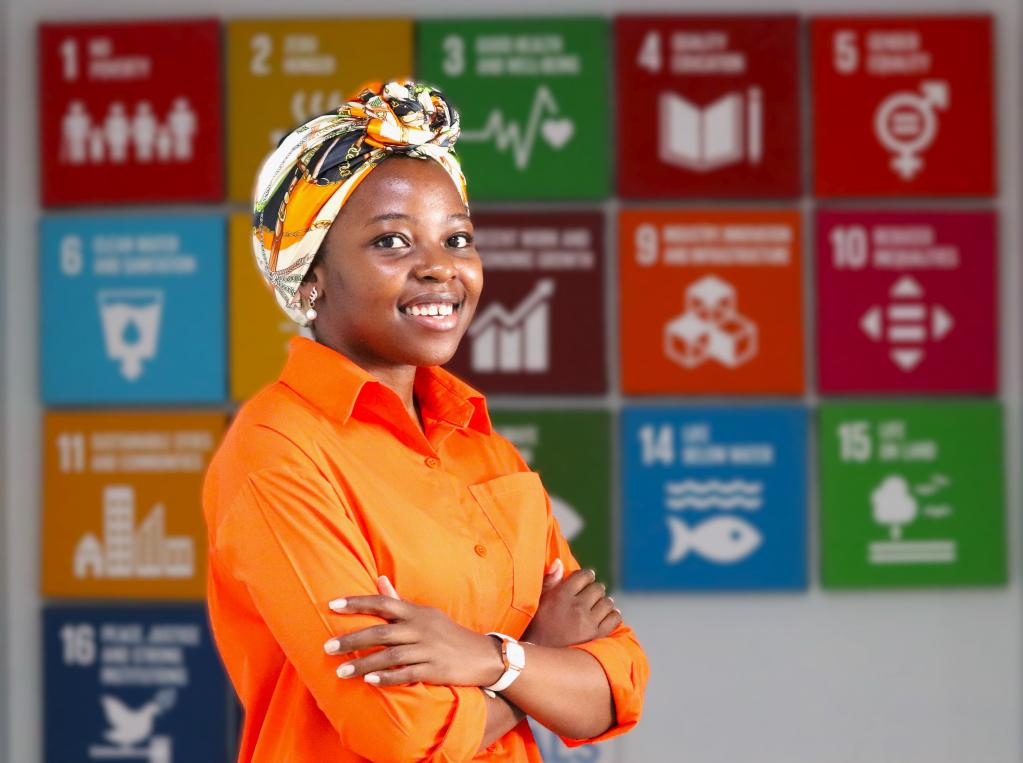
Press Release
22 June 2023
Uniting Against Hate: UN South Africa and partners join forces to combat Hate Speech
JOHANNESBURG, 22 June, 2023 – The United Nations in South Africa in partnership with the Apartheid Museum, the Desmond Tutu Foundation and the Johannesburg Holocaust and Genocide Centre, Media Monitoring Africa (MMA) hosted a panel discussion and a training workshop on hate speech and mis/disinformation to commemorate the International Day for Countering Hate Speech. The overall goal of the event was to bring awareness to and discuss hate speech and mis/disinformation as well as to equip participants with knowledge and practical skills on how to address these ills online.
In his speech, Mr. Nelson Muffuh, the United Nations Resident Coordinator in South Africa, emphasized the UN's commitment to “upholding the principles of human rights, non-discrimination and the right of every individual to be treated with respect and dignity regardless of their nationality, race, religion, gender, ethnicity or sexual orientation. These are precisely the principles and rights that hate speech seeks to suppress.”
Mr. Muffuh also stressed that countering hate speech is a moral obligation that falls on all of us, whether we are government authorities, civil society organizations, the private sector, the media, youth, traditional and customary leaders, or simply individuals. He added that hate speech has a devastating impact on social cohesion, human relations, and safety, and that we must do everything in our power to combat it.
Speaking on a panel, Abigail Noko, Regional Representative for Southern Africa, Office of the United Nations High Commissioner for Human Rights (OHCHR) called for collective efforts towards building positive jurisprudence, saying that states have a mandate to safeguard human rights and must be liable to address incitement of racial discrimination and tackle hate speech.
Janet Jobson, Chief Executive Officer, Desmond and Leah Tutu Foundation, in her message of support called for vigilance around misinformation and disinformation, as hate speech is becoming more prevalent in our society. “We must ensure that we do not fall into the logic of hatred and must not let hatred stand unchallenged. Our humanity is fundamentally bound up with each other and, we must counter hate speech whenever and wherever we encounter it,” said Ms. Jobson.
William Bird, Director of Media Monitoring Africa, also weighed in on the subject and the event saying, “Hate speech doesn’t just cause harm, it incites violence and undermines democracy. We commemorate the International Day for Countering Hate Speech recognizing our recent past, aware that some still seek to use hate speech to silence, bully, denigrate and rob people of their dignity. We all have a responsibility to combat and call out hate speech, but just what is it and how can we do so? Join us as we hear from experts and launch our course to empower the public to act against hate speech online.”
The panellist included Tali Nates, Director, Johannesburg Holocaust and Genocide Centre, Ben Winks, Independent Advocate and Thandi Smith, Head of Programmes, Media Monitoring Africa and focused on “Understanding hate speech from a legal standpoint, its impact on victims and their human rights and, strategies being employed to combat the scourge.”
The participants also had a chance for some insight and messages from Alice Nderitu, UN Special Adviser on the Prevention of Genocide, Janet Jobson, CEO of the Desmond and Leah Tutu Foundation and Honourable Ourveena Geereesha Topsy-Soono, African Commission on Human and People’s Rights Special Rapporteur on Freedom of Expression and Access to Information in Africa.
MMA also launched a programme on hate speech training. Dubbed Hate Speech Spotters Programme (HSSP). The goal is to bring awareness to hate speech, its impact on victims/target groups online, as well as how and why spreading such content is harmful and hurtful. The HSSP is designed for both those who have disseminated or are purveyors of online harms.
For media enquiries please contact: Eunice Namugwe, UN Information Centre – Pretoria, Email: namugwe@un.org, Tel : +27 71 6828310
PHOTOS of event here: https://www.flickr.com/photos/uninsouthafrica/albums/72177720309219465
1 of 5
Story
18 September 2023
The vital role of Indigenous Languages in shaping informed and engaged communities through the Media
The United Nations in South Africa South, in collaboration with the South African National Editors’ Forum (SANEF) and the Pan South African Language Board (PanSALB), recently hosted the inaugural Indigenous Languages and the Media seminar in Johannesburg, South Africa.
The diversity of languages spoken in South Africa is greatly influenced by indigenous languages. It is crucial for their preservation that the media use and promote them. Sadly, there has been a loss in the understanding and usage of indigenous languages, particularly among young people, and less usage of indigenous languages by the media. The seminar sought to discuss and resolve these problems by bringing together key players, such as PanSALB and well-known indigenous language practitioners and media personalities, in order to have open discussions and to start dialogues that could result in practical solutions after the seminar.
In his remarks, Mr. Tafirenyika highlighted the UN’s role and efforts through the UN Educational, Scientific and Cultural Organization (UNESCO) in saving indigenous languages around the world as well as the lessons learned thus far.
“The UN is therefore appealing to all South Africans, including the government, the business sector, the civil society and individuals to do everything in their power to protect and promote linguistic diversity. Such an approach will strengthen, not weaken, our collective cultural heritage. And I can’t but fail to notice that this conference is taking place in September, which is South Africa’s heritage month,” he said.
He told participants that one of the most effective ways to preserve indigenous languages was to develop effective mechanisms for advocacy and awareness campaigns. “This is where the role of our partners in the media becomes crucial. Let me take this opportunity to commend the SABC, the national public broadcaster, for running radio stations with programmes that are broadcast in all the 11 official languages of South Africa.”
The UNIC director urged the media to promote and protect linguistic diversity and form partnerships to preserve cultural diversity and respect traditional ways of life. Governments should enact laws to conserve indigenous languages, such as mobilizing funding, defending linguistic rights, and incorporating these languages into educational systems. He further emphasized that “education is the main instrument in our toolbox of language preservation”.
The necessity of information, which is key to participation in a democracy was highlighted by Professor Abiodun Salawu, a professor of Journalism, Communication, and Media Studies at the North West University, and Director of the research entity, Indigenous Language Media in Africa (ILMA). The media has a role to inform the masses in a language they will understand, he said.
Prof. Salawu told his audience that the development of alternative media and the use of regional languages and creoles have been key factors in the evolution of participation issues, which are essential to democracy. He urged the media to take all the indigenous languages to platforms that the youth can relate with such as social media and reminded attendees that “indigenous language media still remain a potent vehicle for mobilizing people for positive (developmental) goals which include democracy.”
In his address, Lance Schultz, the PanSALB Chief Executive Officer called for the end to “social linguistic tribalism which is essentially a lack of respect for our indigenous languages. We must be intentional with how we communicate for an informed and engaged citizenry,” he added.
“The global decline of print media has negatively affected the development of indigenous languages. Therefore, the need to forge collaborative efforts between the media, parents, teachers and various other stakeholders to promote indigenous languages is now more pertinent than ever.”
The Treasurer-General of SANEF, Tshamano Makhadi, reaffirmed his organization’s commitment to serve the needs of community media and open opportunities for the development of indigenous languages in this sector and beyond. “This proactive stance not only strengthens the vital role of community media but also fosters inclusivity and cultural diversity, creating a richer tapestry of voices in our ever-evolving media landscape, he said, adding: “Through its steadfast efforts, SANEF paves the way for a more inclusive and vibrant media ecosystem, where indigenous languages can flourish, and communities can thrive.”
The recognition of the media's pivotal role in reaching diverse audiences underscores the importance of broadcasting in indigenous languages. As the current media landscape predominantly operates in English, there is an urgent imperative to document, educate, and fortify the usage of indigenous languages.
Embracing technology and fostering innovation becomes paramount in this endeavor, encompassing initiatives like translating books and dictionaries into indigenous languages and developing accessible mobile apps and online platforms. Moreover, the formulation of laws and policies, aligned with UN frameworks such as the UN Declaration on the Rights of Indigenous Peoples, becomes imperative to ensure the preservation and prosperity of indigenous languages for the betterment of all humanity. This multifaceted approach not only enriches people’s cultural fabric but also champions inclusivity and linguistic diversity in the global media landscape.
1 of 5
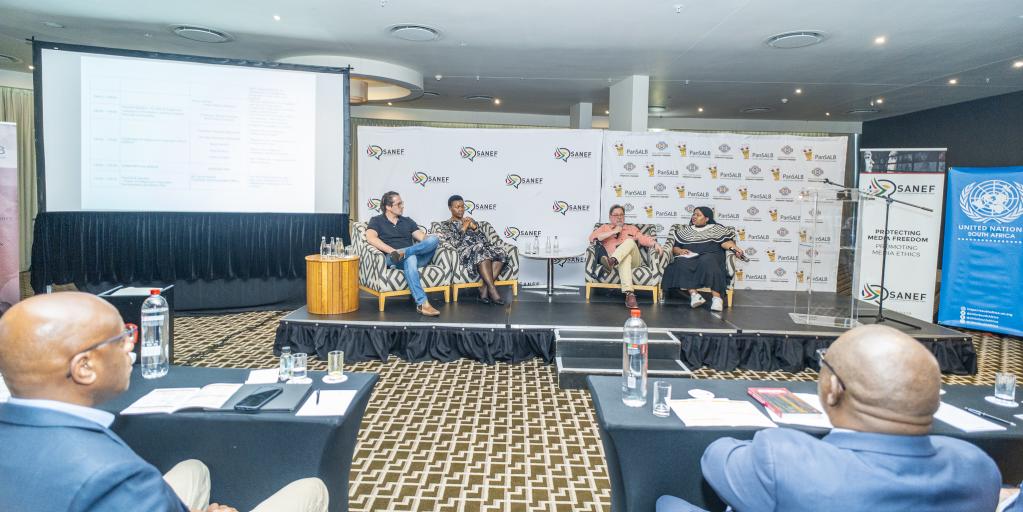
Story
14 July 2025
United Nations Selects Indigenous Social Worker from Canada, Kenyan Social Entrepreneur to Be Awarded 2025 UN Nelson Mandela Prize
The laureates of the 2025 United Nations Nelson Rolihlahla Mandela Prize are Brenda Reynolds, a social worker of Saulteaux heritage supporting the health and well-being of Indigenous communities in Canada, and Kennedy Odede, founder and CEO of Shining Hope for Communities, a Kenyan grassroots organization providing services to urban slums.Secretary-General António Guterres will award the honorary prizes, alongside the President of the seventy-ninth session of the General Assembly, Philemon Yang, as part of the annual commemoration marking Nelson Mandela International Day on 18 July under the theme of “It’s still in our hands to combat poverty and inequality”.“As the United Nations celebrates 80 years, Nelson Mandela’s legacy of reconciliation and transformation continues to inspire and drive us,” Secretary-General António Guterres said. “This year’s Mandela prize winners embody the spirit of unity and possibility — reminding us how we all have the power to shape stronger communities and a better world.”General Assembly President Philemon Yang, who chaired the 2025 Selection Committee, said: “The 2025 UN Nelson Mandela Prize not only honours the legacy of Madiba, but affirms that the spirit of multilateralism lives through the tireless efforts of its laureates — two individuals whose lives reflect the courage to lead, the humility to serve, and the vision to unite across borders.”The winners were selected from 331 nominations received for candidates in 66 Member States.Ms. Reynolds is a Status Treaty member of the Fishing Lake Saulteaux First Nation, in Saskatchewan, Canada. She is known for her development of the Indian Residential School Resolution Health Support programme under the Indian Residential Settlement Agreement and the Truth and Reconciliation Commission.“I speak two languages, yet words fail to express my deep gratitude and surprise at receiving the UN Nelson Rolihlahla Mandela Prize. I am truly humbled. Mandela, a figure I’ve long admired for his work in reconciliation and against apartheid, recognized the parallels between his homeland and the struggles of Indigenous peoples. I have always felt a deep kinship with him,” said Ms. Reynolds upon learning she was one of the two 2025 Laureates.Mr. Odede is the Founder and Chief Executive Officer at SHOFCO. He had been a street-child at the age of 10 and lived in the Kibera Slum for 23 years. Today, SHOFCO impacts more than 2.5 million people each year in Kenya by organizing and strengthening community groups across 68 sites and fostering partnerships to deliver essential services to support them. Kennedy/SHOFCO were also recognized with the UN-Habitat Scroll of Honour award in 2021.“I am so humbled. This award is not about me — it is about the power of communities, and the trust put in local leadership,” said Mr. Odede. “Nelson Mandela taught us that dignity and justice begin from the ground up. This recognition affirms what we believe at SHOFCO: the answers to poverty and inequality already exist within the people most affected.”The winner’s bios are included in this press release.At the July ceremony, the winners will receive a glass trophy engraved with a quote from Nelson Mandela: “What counts in life is not the mere fact that we have lived. It is what difference we have made to the lives of others.”Selection CommitteeIn accordance with Article 4 (1) of the Statute, the Nelson Rolihlahla Mandela Prize recipients are selected by a selection committee. In 2025, the Committee was comprised of:Chair of the Committee
Philemon Yang, President of United Nations General Assembly’s seventy-ninth session;African Group
Osama Mahmoud Abdelkhalek Mahmoud, Permanent Representative of Egypt to the United Nations;Asia-Pacific Group
Jamal Fares Alrowaiei, Permanent Representative of Bahrain to the United Nations;Eastern European Group
Krzysztof Maria Szczerski, Permanent Representative of Poland to the United Nations;Latin American and Caribbean Group
Mutryce Agatha Williams, Permanent Representative of Saint Kitts and Nevis to the United Nations;Western European Group and other States
Elina Kalkku, Permanent Representative of Finland to the United Nations; andEx-officio member of the Committee
Mathu Joyini, Permanent Representative of South Africa to the United Nations.In accordance with Article 4 (2) of the Statute, the following four Eminent Individuals were selected to serve as honorary members of the Committee in an advisory capacity:Marcella A. Liburd, Governor General of the Federation of Saint Kitts and Nevis;Tarja Halonen, former President of Finland;Mohamed Mostafa ElBaradei, Nobel Laureate, former Vice President of Egypt and Director-General of the International Atomic Energy Agency (IAEA); andElżbieta Mikos-Skuza, senior lecturer at the Faculty of Law, University of Warsaw.The UN Department of Global Communications served as the Secretariat of the Committee.Background on the Nelson Rolihlahla Mandela Prize:The United Nations Nelson Rolihlahla Mandela Prize is an honorary award established by General Assembly resolution 68/275 of 6 June 2014. Its statute was approved by General Assembly resolution 69/269 of 2 April 2015. The Prize is presented once every five years as a tribute to the outstanding achievements and contributions of two individuals, one female and one male Laureate, who shall not be selected from the same geographic region.Please visit www.un.org/en/events/mandeladay/prize.For more information on the Laureates of the Nelson Rolihlahla Mandela Prize: www.un.org/en/events/mandeladay/laureates.To watch the live webcast of the General Assembly ceremony starting on 18 July please visit webtv.un.org/.For further information, photos, videos and other resources: www.un.org/en/events/mandeladay/laureates.Media ContactsUN Department of Global Communications as the Mandela Prize Secretariat: Paulina Greer kubiakp@un.org.Brenda ReynoldsBrenda Reynolds, a Status Treaty member of the Fishing Lake Saulteaux First Nation, Saskatchewan, brings a lifetime of lived experience, advocacy and professional leadership to the forefront of Indigenous health, mental wellness and reconciliation efforts in Canada and internationally. Her personal journey — from impacts of cultural genocide to a nationally recognized leader in trauma-informed care — has shaped her deep commitment to addressing the intergenerational impacts of the Indian Residential School system and government assimilation policies.A social worker, Brenda has varied work experiences with First Nation community work, provincial and federal governments. She played a pivotal role in the largest to date court-ordered Indian Residential Schools Settlement Agreement. Her leadership helped establish the Indian Residential School Resolution Health Support Program — a national, culturally grounded mental health initiative. The Resolution Health Support workers became the first trauma responders to the Indian residential school survivors, their families and Canadians. This programme is still funded and active today, noted for its contributions to healing and post-traumatic growth.In 1988, Brenda worked and supported 17 teen girls who disclosed sexual abuse at Gordon’s Residential School by a staff member. This was the first court case of sexual abuse by an Indian residential school staff member in Saskatchewan. The final report of the Truth and Reconciliation Commission later stated that the Gordon’s Indian Residential School has become known as one of the “worst run schools in the entire residential school system”.Brenda later worked as a special adviser to the Truth and Reconciliation Commission, where she coordinated survivor support at national events and advised Commissioners on trauma response. Her ability to mediate, de-escalate and lead with compassion earned the praise of law enforcement and event organizers alike.Brenda’s expertise is sought globally. In 2023, she was invited by the United Nations High Commissioner for Human Rights and the European Union to share her insights on trauma and cultural genocide. Her doctoral studies in clinical psychology focus on trauma interventions for cultural genocide, further contributing to global academic understanding.Brenda continues to provide consultation and training across Canada and internationally, bringing clarity and compassion to complex conversations on trauma, reconciliation and healing. She currently resides in Alberta, Canada.Kennedy OdedeKennedy Odede is the Founder and Chief Executive Officer at SHOFCO, Kenya’s largest grassroots movement, and one of Africa’s most esteemed social entrepreneurs and community organizers. He is best known for his award-winning work to transform the lives of slum residents and direct resources and decision-making power to local community organizations.Kennedy became a street child at the age of 10 and lived in the Kibera Slum for 23 years. During this time, he experienced extreme poverty first-hand, but also witnessed the palpable hope that persists in slums and recognized that people sought something different for themselves, their families and their communities. Through earning $1 for 10 hours of work at a factory, Kennedy managed to save 20 cents to buy a soccer ball, which he used to bring community members together, and, with that, SHOFCO was born.Today, SHOFCO impacts more than 2.4 million people each year in Kenya by organizing and strengthening community groups across 68 sites and fostering partnerships to deliver essential services to support them.In 2024, Kennedy was named one of TIME’s 100 Most Influential People. In addition, he has been appointed by administrator Samantha Power to the USAID Advisory Committee and has served as a Fellow with Humanity in Action, Aspen Institute and Echoing Green. Kennedy is also a Young Global Leader at the World Economic Forum, an Obama Foundation Africa Leader and a member of the Clinton Global Initiative. Prior to this, he served on the United Nations International Commission for Financing of Global Education Opportunities, and on the Board of Directors of Wesleyan University.Kennedy is the co-author of the New York Times Best Seller, Find Me Unafraid: Love, Loss and Hope in an African Slum, which he wrote with his wife, Jessica Posner Odede. His work has been featured by President Bill Clinton, and on multiple occasions by Nicholas Kristof in The New York Times.Kennedy holds a bachelor’s degree in sociology from Wesleyan University in the United States.Published by: UN News https://press.un.org/en/2025/pi2330.doc.htm?_gl=1*a6q5ho*_ga*MTM5OTUzMzQ0NS4xNjQ2MjA3MDMw*_ga_TK9BQL5X7Z*czE3NTI0NzM3NjIkbzE3MiRnMSR0MTc1MjQ3NTcyNyRqNjAkbDAkaDA.
Philemon Yang, President of United Nations General Assembly’s seventy-ninth session;African Group
Osama Mahmoud Abdelkhalek Mahmoud, Permanent Representative of Egypt to the United Nations;Asia-Pacific Group
Jamal Fares Alrowaiei, Permanent Representative of Bahrain to the United Nations;Eastern European Group
Krzysztof Maria Szczerski, Permanent Representative of Poland to the United Nations;Latin American and Caribbean Group
Mutryce Agatha Williams, Permanent Representative of Saint Kitts and Nevis to the United Nations;Western European Group and other States
Elina Kalkku, Permanent Representative of Finland to the United Nations; andEx-officio member of the Committee
Mathu Joyini, Permanent Representative of South Africa to the United Nations.In accordance with Article 4 (2) of the Statute, the following four Eminent Individuals were selected to serve as honorary members of the Committee in an advisory capacity:Marcella A. Liburd, Governor General of the Federation of Saint Kitts and Nevis;Tarja Halonen, former President of Finland;Mohamed Mostafa ElBaradei, Nobel Laureate, former Vice President of Egypt and Director-General of the International Atomic Energy Agency (IAEA); andElżbieta Mikos-Skuza, senior lecturer at the Faculty of Law, University of Warsaw.The UN Department of Global Communications served as the Secretariat of the Committee.Background on the Nelson Rolihlahla Mandela Prize:The United Nations Nelson Rolihlahla Mandela Prize is an honorary award established by General Assembly resolution 68/275 of 6 June 2014. Its statute was approved by General Assembly resolution 69/269 of 2 April 2015. The Prize is presented once every five years as a tribute to the outstanding achievements and contributions of two individuals, one female and one male Laureate, who shall not be selected from the same geographic region.Please visit www.un.org/en/events/mandeladay/prize.For more information on the Laureates of the Nelson Rolihlahla Mandela Prize: www.un.org/en/events/mandeladay/laureates.To watch the live webcast of the General Assembly ceremony starting on 18 July please visit webtv.un.org/.For further information, photos, videos and other resources: www.un.org/en/events/mandeladay/laureates.Media ContactsUN Department of Global Communications as the Mandela Prize Secretariat: Paulina Greer kubiakp@un.org.Brenda ReynoldsBrenda Reynolds, a Status Treaty member of the Fishing Lake Saulteaux First Nation, Saskatchewan, brings a lifetime of lived experience, advocacy and professional leadership to the forefront of Indigenous health, mental wellness and reconciliation efforts in Canada and internationally. Her personal journey — from impacts of cultural genocide to a nationally recognized leader in trauma-informed care — has shaped her deep commitment to addressing the intergenerational impacts of the Indian Residential School system and government assimilation policies.A social worker, Brenda has varied work experiences with First Nation community work, provincial and federal governments. She played a pivotal role in the largest to date court-ordered Indian Residential Schools Settlement Agreement. Her leadership helped establish the Indian Residential School Resolution Health Support Program — a national, culturally grounded mental health initiative. The Resolution Health Support workers became the first trauma responders to the Indian residential school survivors, their families and Canadians. This programme is still funded and active today, noted for its contributions to healing and post-traumatic growth.In 1988, Brenda worked and supported 17 teen girls who disclosed sexual abuse at Gordon’s Residential School by a staff member. This was the first court case of sexual abuse by an Indian residential school staff member in Saskatchewan. The final report of the Truth and Reconciliation Commission later stated that the Gordon’s Indian Residential School has become known as one of the “worst run schools in the entire residential school system”.Brenda later worked as a special adviser to the Truth and Reconciliation Commission, where she coordinated survivor support at national events and advised Commissioners on trauma response. Her ability to mediate, de-escalate and lead with compassion earned the praise of law enforcement and event organizers alike.Brenda’s expertise is sought globally. In 2023, she was invited by the United Nations High Commissioner for Human Rights and the European Union to share her insights on trauma and cultural genocide. Her doctoral studies in clinical psychology focus on trauma interventions for cultural genocide, further contributing to global academic understanding.Brenda continues to provide consultation and training across Canada and internationally, bringing clarity and compassion to complex conversations on trauma, reconciliation and healing. She currently resides in Alberta, Canada.Kennedy OdedeKennedy Odede is the Founder and Chief Executive Officer at SHOFCO, Kenya’s largest grassroots movement, and one of Africa’s most esteemed social entrepreneurs and community organizers. He is best known for his award-winning work to transform the lives of slum residents and direct resources and decision-making power to local community organizations.Kennedy became a street child at the age of 10 and lived in the Kibera Slum for 23 years. During this time, he experienced extreme poverty first-hand, but also witnessed the palpable hope that persists in slums and recognized that people sought something different for themselves, their families and their communities. Through earning $1 for 10 hours of work at a factory, Kennedy managed to save 20 cents to buy a soccer ball, which he used to bring community members together, and, with that, SHOFCO was born.Today, SHOFCO impacts more than 2.4 million people each year in Kenya by organizing and strengthening community groups across 68 sites and fostering partnerships to deliver essential services to support them.In 2024, Kennedy was named one of TIME’s 100 Most Influential People. In addition, he has been appointed by administrator Samantha Power to the USAID Advisory Committee and has served as a Fellow with Humanity in Action, Aspen Institute and Echoing Green. Kennedy is also a Young Global Leader at the World Economic Forum, an Obama Foundation Africa Leader and a member of the Clinton Global Initiative. Prior to this, he served on the United Nations International Commission for Financing of Global Education Opportunities, and on the Board of Directors of Wesleyan University.Kennedy is the co-author of the New York Times Best Seller, Find Me Unafraid: Love, Loss and Hope in an African Slum, which he wrote with his wife, Jessica Posner Odede. His work has been featured by President Bill Clinton, and on multiple occasions by Nicholas Kristof in The New York Times.Kennedy holds a bachelor’s degree in sociology from Wesleyan University in the United States.Published by: UN News https://press.un.org/en/2025/pi2330.doc.htm?_gl=1*a6q5ho*_ga*MTM5OTUzMzQ0NS4xNjQ2MjA3MDMw*_ga_TK9BQL5X7Z*czE3NTI0NzM3NjIkbzE3MiRnMSR0MTc1MjQ3NTcyNyRqNjAkbDAkaDA.
1 of 5
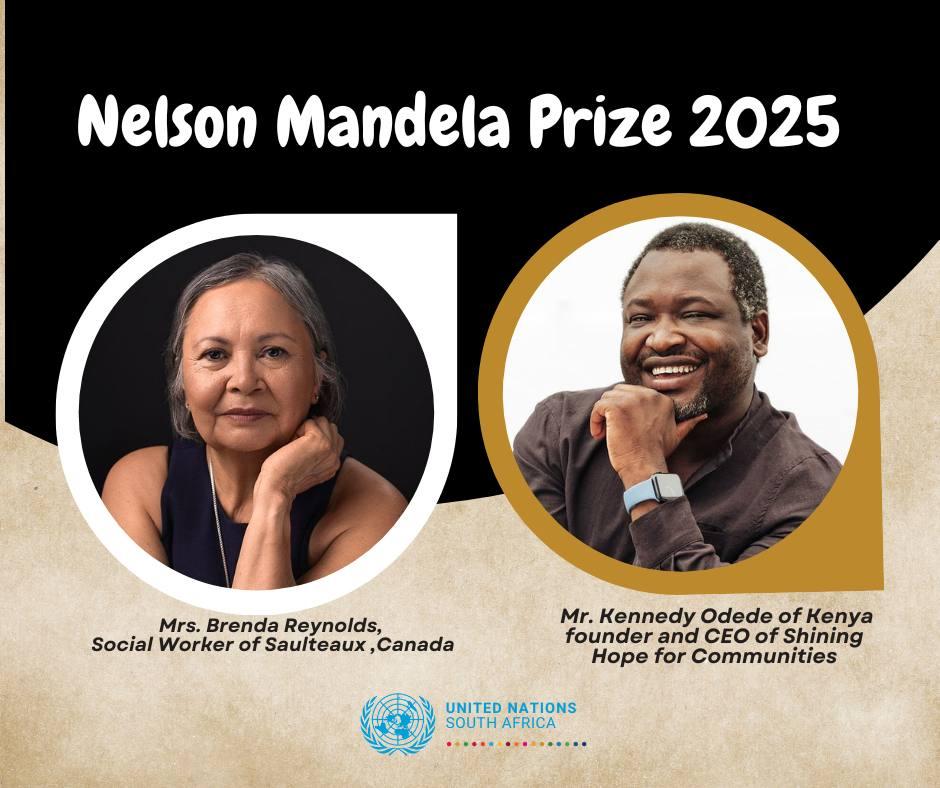
Story
07 July 2025
Powering Equality: South Africa’s Just Energy Transition Backed by the Joint SDG Fund
The United Nations is helping South Africa to forge a greener, more inclusive path to sustainable development with a Joint SDG Fund sponsored programme that backs transformative initiatives to accelerate progress towards the Sustainable Development Goals (SDGs). This pioneering initiative brings together several UN agencies including FAO, IFAD, ILO, UNDP, UNECA, UNEP, UNFPA, UNIDO, and UN WOMEN, to support South Africa’s shift towards a low-carbon economy, while ensuring that vulnerable communities, women, and young people are not left behind in the process.Powering Progress with People at the CentreThe programme responds directly to South Africa’s Just Transition Framework, which is its bold commitment to phasing out fossil fuels in a way that prioritizes equity, jobs, and social justice. In a context where high unemployment, energy poverty, and inequality persist, this initiative aims to catalyse a more resilient and inclusive green economy.“A just energy transition must be about more than technology—it must also be about people,” said Nelson Muffuh, the UN Resident Coordinator in South Africa. “This programme puts gender equality, decent work, and innovation at the heart of South Africa’s green future.”By fostering community-level engagement, building local capacity, and addressing structural inequalities, the joint programme is designed to ensure that the benefits of a cleaner energy future reach the most marginalised—including smallholder farmers, youth, and women entrepreneurs.An Integrated UN Partnership for ChangeEach participating agency brings a critical dimension to the partnership. For instance:UN Women ensures that women’s leadership and participation are embedded across green value chains and energy policy design.UNIDO contributes technical know-how in industrial innovation, clean energy solutions, and Micro Small and Medium Enterprises (MSME) development.ILO provides support through promotion of social justice, decent work strategies, and environmental sustainability.The programme is promoting women’s leadership in areas such as financial inclusion and gender-responsive energy transitions while identifying structural barriers and gender inequalities that hinder women’s economic empowerment in the energy and electricity sectors; sustainable practices in agriculture which incorporates the interests of smallholder farmers through access to new technologies and adoption of renewable sources of energy in their production process; ensuring the participation of small holders, women, marginalised groups and local communities in the hydrogen value chain; and engaging communities through inclusive dialogues to co-design locally driven solutions.“This programme shows what’s possible when we combine innovation with inclusion,” noted Dr Kefiloe Masiteng, Head of the UN Resident Coordinator’s Office. “South Africa can lead the way in showing that climate action and economic justice can go hand in hand.”Backed by Global SolidarityThis joint programme is made possible through seed funding from the Joint SDG Fund, a global pooled funding mechanism dedicated to unlocking systemic progress towards the SDGs.These international contributions reflect a growing global commitment to climate justice, and to building resilient economies that prioritize both people and planet.Towards Transformative ImpactLooking ahead, the initiative will prioritize:Targeted dialogues with affected communities to co-design and lead implementation.Expert technical support through the UN system and external specialists to address persistent barriers in energy access.Scalable solutions to improve renewable energy integration in rural and informal economies—especially among smallholder farmers and MSMEs.And the documentation of impact stories and lessons learned, to influence national policy and global practice.Aligned with SDG 7 (Affordable and Clean Energy), SDG 8 (Decent Work and Economic Growth), and SDG 13 (Climate Action), this programme exemplifies what integrated, multi-stakeholder collaboration can achieve.As implementation gains momentum in 2025, the UN and its partners remain committed to ensuring that South Africa’s just energy transition is not only green—but also just, inclusive, and transformative.This joint programme is supported by the Joint SDG Fund. We sincerely appreciate the contributions from the European Union and the governments of Belgium, Denmark, Germany, Ireland, Italy, Luxembourg, Monaco, the Netherlands, Norway, Poland, Portugal, Republic of Korea, Saudi Arabia, Spain, Sweden, and Switzerland in accelerating progress towards the SDGs.
1 of 5
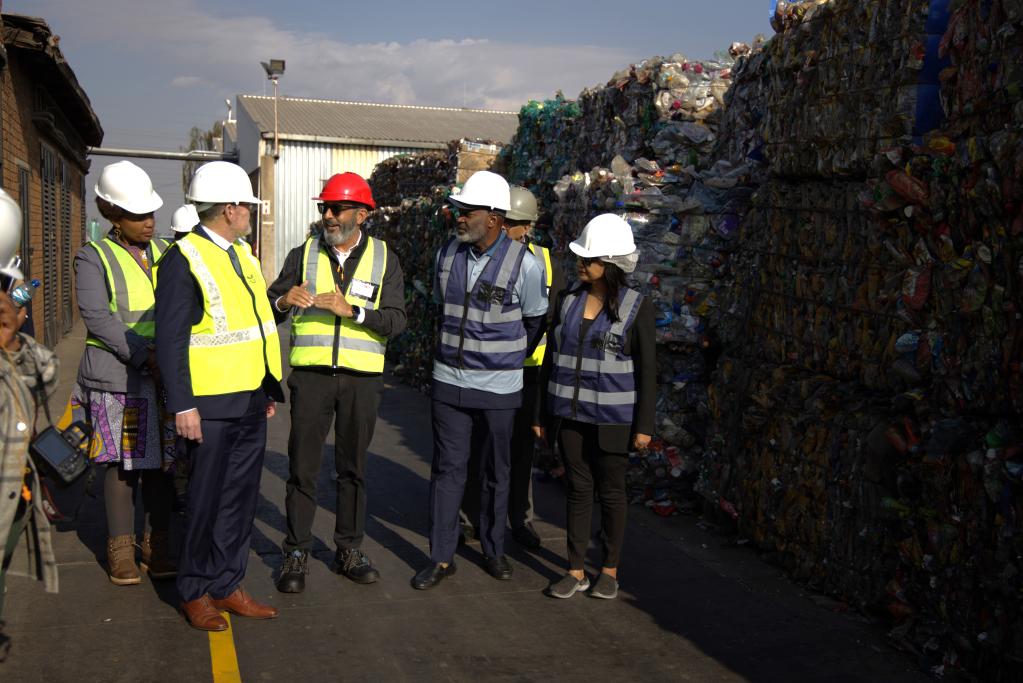
Story
01 July 2025
Time for South Africa to lead: Nelson Muffuh
As the world prepares for the Fourth International Conference on Financing for Development (FFD4), the imminent Compromiso de Sevilla marks a critical inflection point in our collective journey toward the 2030 Agenda.For South Africa, this moment is not only timely —it is transformative.South Africa’s G20 Presidency, the first on the African continent, coincides with a period of profound transition.The country is navigating the early stages of a Government of National Unity, implementing the Medium-Term Development Plan (MTDP 2024 —2029), and finalising a new UN Sustainable Development Cooperation Framework (Cooperation Framework).These converging milestones offer a unique opportunity to reimagine development finance in ways that are inclusive, catalytic, and future fit.As South Africa leads a delegation to Seville this week to join the UN Secretary-General, and other world leaders including the host Prime Minister Sanchez, it is encouraging to note the call in the Compromiso de Sevilla for capitalization of the multilateral development banks, increased voice and representation for developing countries in global economic decision-making, and enhanced trade and financial integrity, including the creation of forums to address illicit financial flows and the role of credit rating agencies.These are essential to restoring trust and fairness in the global economy.South Africa’s leadership in these areas can set a precedent for others to follow.The Compromiso de Sevilla also provides a blueprint that resonates with South Africa’s development trajectory.It reinforces the centrality of social protection, climate finance, taxation, private financing, tax cooperation, and debt reform —areas where South Africa has both urgent needs and bold ambitions.The MTDP, endorsed by Cabinet, positions inclusive growth, job creation, poverty eradication, accountable institutions, just energy transition and climate resilience as national imperatives.These priorities are echoed in the current UN Sustainable Development Cooperation Framework’s four strategic pillars and the six SDG transitions—food systems, energy, digital connectivity, education, jobs and social protection, and climate action.South Africa’s leadership in the G20 and other multilateral spaces offers is an opportunity to champion reforms that matter deeply to the Global South.The call to establish a sovereign debt facility and a new intergovernmental tax body aligns with South Africa’s advocacy for a fairer global financial architecture.South Africa can lead the charge in ensuring these mechanisms are not only adopted but implemented with urgency and equity.These reforms are not abstract, they are essential to unlocking fiscal space for people- centered and planet-sensitive investments in health, education, energy, and Infrastructure.At home, the development of an Integrated National Financing Framework (INFF) can help align all sources of finance —public and private, domestic and international —with the SDGs.The UN system stands ready to support this effort, building on our joint work to localise the SDGs through the District Development Model and to accelerate progress through the six transitions and their associated “engine room” actions.These transitions are not theoretical.They are grounded in South Africa’s lived realities—from energy poverty in informal settlements to digital exclusion in rural areas, from youth unemployment to climate vulnerability.The Just Energy Transition Investment Plan (JET IP), Operation Vulindlela on structural reforms, the Climate Change Act and the associated Nationally Determined Contribution, and the push for expanded social protection, better education outcomes, transformed food systems, universal broadband are all examples of how South Africa is turning ambition into action.But ambition alone is not enough. We must finance it.As United Nations Secretary-General António Guterres recently reminded us:“We cannot let our financing for development ambitions get swept away.We have just five years to reach the Sustainable Development Goals. We need to shift into overdrive, and that includes making good on the commitments countries made in the Pact for the Future… from a necessary stimulus to help countries invest in their people, to vital and long-awaited reforms to the global financial architecture”.The FFD4 conference is a chance to move from rhetoric to results. South Africa can lead by example—by championing rights-based reforms globally and implementing them locally.By aligning its G20 agenda with the SDG transitions. By ensuring that every rand spent is an investment in a more just, resilient, and sustainable future.Its citizens, the continent and the rest of the world are watching. And South Africa is ready to lead. – By Nelson Muffuh, UN Resident Coordinator in South Africa 30 June 2025.Published by SABC News: https://www.sabcnews.com/sabcnews/south-africas-moment-to-lead/
1 of 5
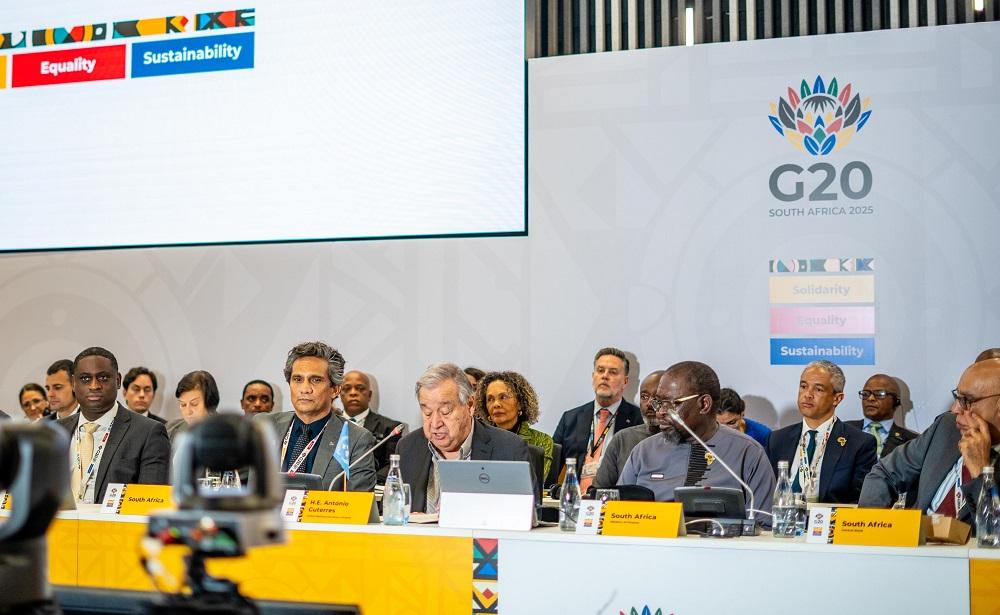
Story
26 June 2025
SA's G20 Presidency should focus on humanity’s most pressing challenges, says UN Resident Coordinator
As South Africa’s Group of 20 (G20) Presidency approaches its final six months, the focus should be on fostering multilateral cooperation and finding collective solutions to humanity’s most pressing challenges. According to the United Nations (UN) Resident Coordinator in South Africa, Nelson Muffuh, the world’s major economies should aim to develop innovative approaches to complex global issues related to poverty, unemployment, and sustainable development.“The countries that carry the economy of the world must come together and find each other and resolve some of the challenges. “They need to agree on some of the common solutions they can advance to resolve issues of inequalities, poverty, unemployment, governance, and trade. So, I think group, which is often referred to as a ‘ginger group’, is really an important platform as part of the wider multilateral system which the UN embodies.” Muffuh was speaking to SAnews during the third Sherpa meeting of the G20, which began on Wednesday.The Sun City Convention Centre in the North West was filled with representatives from the world’s largest economies and organisations as Zane Dangor, the Director-General of the Department of International Relations and Cooperation and South Africa’s G20 Sherpa, delivered his opening remarks.Muffuh believes that South Africa’s G20 Presidency is making significant progress in addressing global challenges, with an emphasis on promoting solidarity, equality, and sustainability. Halfway through its Presidency, the country has already held 70 out of a planned 132 meetings across various working groups, focusing on critical issues affecting the international community.“So, we need to look at where we are with regards to the momentum towards achieving some of the envisaged outcomes around reform of the international financial architecture, capitalisation of the multilateral development banks, financing for the SDGs [Sustainable Developmental Goals] and financing for climate action, Just Energy Transition, the tackling of inequalities. A lot of these issues have been discussed extensively,” he told SAnews. According to the UN official, the Presidency should strengthen multilateral cooperation as global tensions hinder collective progress.“We’re not on track to achieve the outcomes of the Sustainable Development Goals, for example. So, I think the focus really should be on ensuring we do not lose track, despite the concerns, despite the intentions to still find ways of coming together, find each other, and common ground to make progress.”A central theme emerging from meetings is the urgent need to overcome geopolitical divisions and work collaboratively on pressing global challenges. Despite ongoing tensions, including notable absences like the United States, Muffuh said the G20 remains committed to creating a platform for constructive dialogue and finding common solutions.He believes that the upcoming international gatherings, such as the Financing for Development Conference, the 30th Conference of the Parties to the United Nations Framework Convention on Climate Change (COP30 Summit), and the UN General Assembly, will create additional opportunities to enhance the G20’s collaborative efforts and advocate for meaningful global progress. First published by – SAnews.gov.za
1 of 5
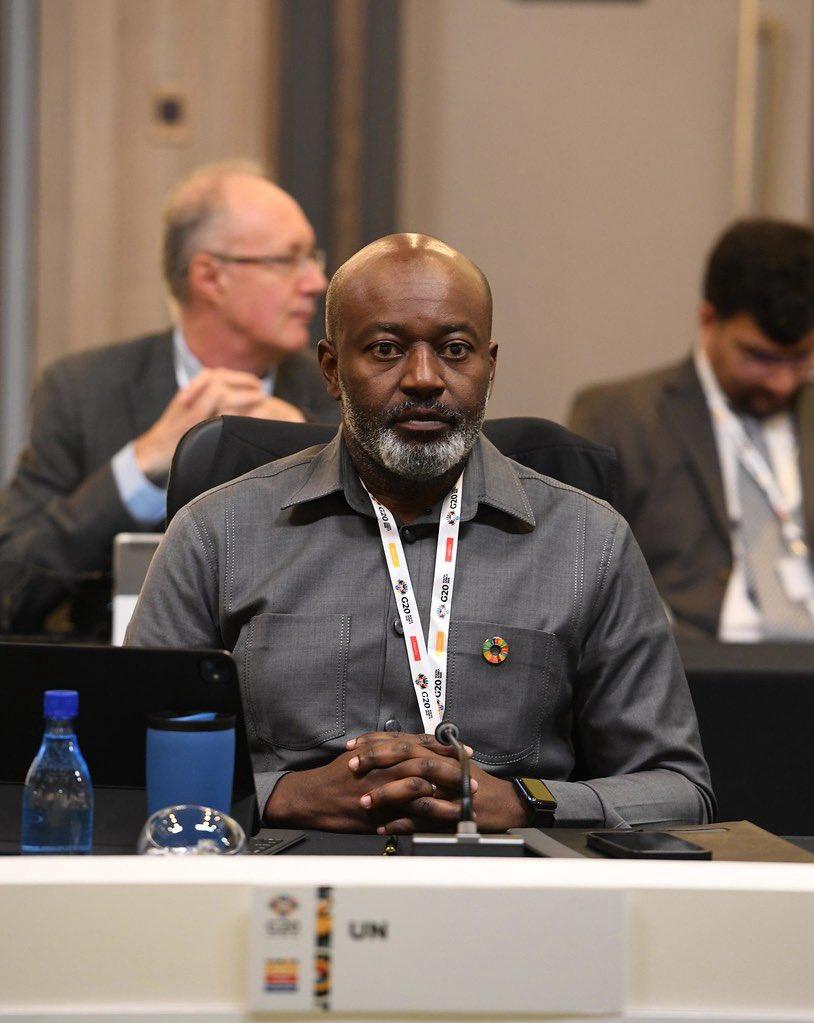
Story
20 June 2025
Advancing solidarity for refugees through action
World Refugee Day 2025 was marked by a powerful call for solidarity and inclusion, as the United Nations High Commissioner for Refugees joined hands with the South African Government and key stakeholders to honour refugees and the communities that host them. Held on 20 June 2025, at the Heartfelt Arena in Thaba-Tshwane, Pretoria, the commemoration carried the global theme “Solidarity with Refugees.” It came at a critical time, with forced displacement reaching record levels of over 122 million people globally, according to UNHCR’s latest Global Trends Report.This year’s commemoration served as a platform to recognize the courage of those forced to flee conflict and persecution, while also celebrating the compassion extended by the communities that welcome them. The programme brought together high-level government officials, members of the diplomatic corps, civil society representatives, refugee-led organisations, and private sector leaders reflecting a shared commitment to protecting the rights and dignity of displaced people.Mr. Igor Ciobanu, UNHCR Representative a.i, formally welcomed guests, setting the tone for a day rooted in solidarity and shared commitment. Delivering remarks on behalf of the United Nations, Mr Nelson Muffuh, UN Resident Coordinator, drew attention to the growing disconnect between rising refugee needs and diminishing global support.“Becoming a refugee is never a choice—but how we respond is,” he said, quoting the UN Secretary-General. “Let us choose solidarity. Let us choose courage. Let us choose humanity.” Muffuh also emphasized South Africa’s longstanding role as a regional haven for the displaced.” As part of the day’s commitments, Mukuru, represented by Pearl Mphuthi, Head of Corporate Social Investment (CSI), generously donated R20,000 to UNHCR in support of its refugee programmes. In her remarks, Mphuthi underscored the importance of empathy, inclusion, and the shared human experience, highlighting that true solidarity begins with recognizing that belonging is a right, not a privilege. “Celebrating humanity means standing with those who’ve lost everything. Belonging is a right—not a privilege.” In a further show of solidarity, Zhauns Marketing Executive, Mr. Riad Ahmed, donated baking machinery to support refugee entrepreneurs in building sustainable livelihoods. Similarly, Ashraful Aid’s CEO pledged USD 10,000 towards UNHCR’s efforts in South Africa, reinforcing the importance of collaborative support from across sectors.The day also emphasised the legal and policy frameworks essential for refugee protection. Adv. Aubrey Sedupane, representing the Department of Justice and Constitutional Development, referenced the Prevention and Combating of Hate Crimes and Hate Speech Bill, urging that solidarity must be matched with action:“Let us go beyond words—toward legislative reform, safe spaces, and the upholding of dignity, equality, and the principle of Ubuntu.”Echoing these sentiments, Mr. Mandla Madumisa, Chief Director of Asylum Seeker Management at the Department of Home Affairs, reflected on the 30th anniversary of South Africa’s Constitutional Court, calling for continued constitutional protection of refugees:“Standing with refugees is standing with the Constitution.”Refugee-led networks took to the stage to shed light on the daily realities and systemic challenges faced by displaced communities in South Africa. Through powerful and emotional testimony, representatives called for urgent policy responses, including a one-time amnesty for individuals who lost legal documentation during the COVID-19 pandemic, decisive action to end corruption, and a renewed sense of empathy and compassion from host communities.“Where must we go?” asked one representative. “Africa did not shut its doors during apartheid. We ask you not to slam them on us now.” Their voices served as a reminder that beyond policy and programming, the lived experiences of refugees must be heard, respected, and placed at the centre of all protection efforts.A standout feature of the day was a high-level panel discussion on “Sport for Social Cohesion”, moderated by renowned broadcaster and UNHCR Goodwill Ambassador Leanne Manas. The panel brought together a distinguished lineup of speakers, including acclaimed pulmonologist and former refugee Dr Emmanuel Taban, alongside respected academics, policymakers, and sports leaders.The discussion explored how sport can act as a unifying force between refugee and host communities, while promoting inclusion, healing, and mutual understanding. Panellists emphasised the importance of elevating refugee voices—particularly those of women, youth, and children—in sport-related initiatives. The session also facilitated dialogue among researchers, practitioners, and decision-makers, sharing best practices and calling for sustained support to strengthen sport as a tool for social cohesion.The day concluded with a vibrant celebration of culture, resilience, and community. Guests were treated to captivating performances by dancers from the South African Dance Academy and a lively Congolese cultural group, whose traditional and contemporary routines embodied the spirit of unity and belonging. These artistic expressions complemented the broader programme of activities, which included a basketball tournament organised in collaboration with Sunnyside Basketball Club and Judo for Peace promoting health, teamwork, and social cohesion.World Refugee Day 2025 served as a powerful reminder that when we act together with empathy, respect, and purpose we can build societies rooted in hope, dignity, and shared humanity. Now more than ever, we are called to stand with refugees not only in words, but in action.
1 of 5
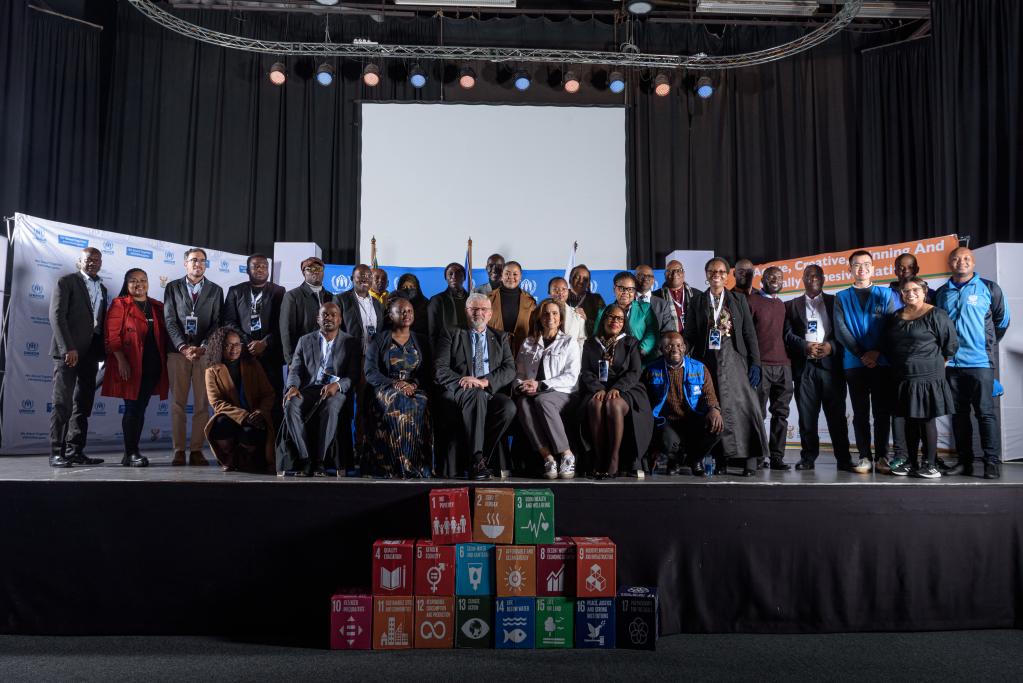
Press Release
11 July 2025
Yu Yu UNFPA Representative in South Africa speaks to Ubuntu Radio about World Population Day 2025
Pretoria, South Africa – As the world marks World Population Day 2025, the United Nations Population Fund (UNFPA) is calling for renewed global attention to the barriers that prevent young people from achieving their reproductive goals. This year’s theme, “Empowering young people to create the families they want in a fair and hopeful world,” challenges narratives that blame youth for global declines in fertility and instead highlights the structural obstacles standing in their way.Contrary to the common perception that young people are choosing careers or independence over family life, many express a strong desire to form lasting partnerships and raise children. Yet they are deterred by economic uncertainty, climate anxiety, health challenges, rising inequality, and lack of adequate support systems.“The real fertility crisis isn’t about numbers – it’s about agency,” said Dr. Natalia Kanem, Executive Director of UNFPA. “When people are unable to realize their reproductive intentions because of social or economic constraints, it’s a failure of systems, not of individuals.” Many young people report that they simply can’t afford to start families. Lack of affordable housing, job insecurity, gender inequality, and online backlash against women’s rights are contributing to a global climate of hesitation and anxiety. These pressures are even more acute for youth from marginalized groups, including those from lower-income backgrounds, migrant communities, and LGBTQIA+ populations.To address this, UNFPA calls for:Comprehensive sexuality education that equips youth to make informed life decisions,Economic policies that ensure decent work and a living wage,Family-friendly support systems like accessible childcare and paid parental leave,Inclusive decision-making processes that bring young people to the policy table.World Population Day is a reminder that creating a sustainable future starts with listening to young people – and ensuring they have the resources, rights, and respect needed to build the lives they envision. “Starting on this World Population Day, let’s listen to what young people want and need and create conditions that enable them to exercise their rights, make their own choices and enjoy a hopeful future,” urged Dr. Kanem.#worldpopulationday #unfpa #ubunturadio #youthempowerment
1 of 5
Press Release
10 July 2025
Countries must urgently step up to transform their HIV responses amid an international funding crisis that risks millions of lives
GENEVA/JOHANNESBURG, 10 July 2025—UNAIDS today launched its 2025 Global AIDS Update, AIDS, Crisis and the Power to Transform, which shows that a historic funding crisis is threatening to unravel decades of progress unless countries can make radical shifts to HIV programming and funding.The report highlights the impact that the sudden, large-scale funding cuts from international donors are having on countries most affected by HIV. Yet it also showcases some inspiring examples of resilience, with countries and communities stepping up in the face of adversity to protect the gains made and drive the HIV response forward.Some 25 of the 60 low and middle-income countries included in the report have indicated increases in domestic budgets for their HIV responses in 2026. The estimated collective rise among the 25 countries amounts to 8% over current levels, translating to approximately USD 180 million in additional domestic resources. This is promising, but not sufficient to replace the scale of international funding in countries that are heavily reliant.A global emergency: massive cuts and weakening of aid consensus threaten to reverse progressDespite marked progress in the HIV response in 2024, the weakening aid consensus and significant and abrupt funding shortfalls in the HIV response in 2025 have triggered widespread disruption across health systems and cuts to frontline health workers—halting HIV prevention programmes and jeopardizing HIV treatment services.In Mozambique alone, over 30 000 health personnel were affected. In Nigeria, pre-exposure prophylaxis (PrEP) initiation has plummeted from 40 000 to 6000 people per month. If US-supported HIV treatment and prevention services collapse entirely, UNAIDS estimates that an additional 6 million new HIV infections, and 4 million additional AIDS-related deaths could occur between 2025 and 2029.“This is not just a funding gap—it’s a ticking time bomb,” said UNAIDS Executive Director Winnie Byanyima. “We have seen services vanish overnight. Health workers have been sent home. And people—especially children and key populations—are being pushed out of care.”Even before the large-scale service disruptions, the reported data for 2024 shows that 9.2 million people living with HIV were still not accessing life-saving treatment services last year. Among those were 620 000 children aged 0—14 years living with HIV but not on treatment which contributed to 75 000 AIDS-related deaths among children in 2024.In 2024, 630 000 people died from AIDS-related causes, 61% of them in sub-Saharan Africa. Over 210 000 adolescent girls and young women aged 15—24 acquired HIV in 2024—an average of 570 new infections every day.HIV prevention services are severely disrupted. Community-led services, which are vital to reaching marginalized populations, are being defunded at alarming rates. In early 2025, over 60% of women-led HIV organizations surveyed had lost funding or were forced to suspend services. The United States President’s Emergency Plan for AIDS Relief (PEPFAR) reached 2.3 million adolescent girls and young women with comprehensive HIV prevention services in 2024 and enabled 2.5 million people to use HIV PrEP—many of these programmes have now stopped completely.Meanwhile, the rise in punitive laws criminalizing same-sex relationships, gender identity, and drug use is amplifying the crisis, making HIV services inaccessible. Countries like Uganda, Mali and Trinidad and Tobago have seen recent harmful and discriminatory changes to their criminal laws targeting key populations, pushing them further from care and dramatically raising their risk of acquiring HIV.A beacon of hope: countries and communities are stepping up to protect essential HIV treatment gains and progress is being madeSouth Africa currently funds 77% of its AIDS response and its 2025 budget review includes a 5.9% annual increase in health expenditure over the next three years, including a 3.3% annual increase for HIV and tuberculosis programmes. The government intends to finance the development of a patient information system, a centralized chronic medicine dispensing and distribution system, and a facility medicine stock surveillance system.As of December 2024, seven countries—Botswana, Eswatini, Lesotho, Namibia, Rwanda, Zambia, and Zimbabwe—had achieved the 95-95-95 targets: 95% of people living with HIV know their status, 95% of those are on treatment, and 95% of those on treatment are virally suppressed. These successes must be maintained and further scaled up.The report also highlights the emergence of unprecedented, highly effective new prevention tools like long-acting injectable PrEP, including Lenacapavir, which has shown near-complete efficacy in clinical trials—though affordability and access remain key challenges.“There is still time to transform this crisis into an opportunity,” said Ms. Byanyima. “Countries are stepping up with domestic funding. Communities are showing what works. We now need global solidarity to match their courage and resilience.”A call for solidarity The 2025 Global AIDS Update concludes with an urgent call: the global HIV response cannot rely on domestic resources alone. The international community must come together to bridge the financing gap, support countries to close the remaining gaps in HIV prevention and treatment services, remove legal and social barriers, and empower communities to lead the way forward.UNAIDS emphasizes that every dollar invested in the HIV response not only saves lives but strengthens health systems and promotes broader development goals. Since the start of the epidemic, 26.9 million deaths have been averted through treatment, and 4.4 million children protected from HIV infection through vertical transmission prevention.“In a time of crisis, the world must choose transformation over retreat,” said Ms Byanyima. “Together, we can still end AIDS as a public health threat by 2030—if we act with urgency, unity, and unwavering commitment.”UNAIDS report is being launched ahead of the Scientific AIDS Conference IAS 2025 taking place in Kigali, Rwanda, from 13-17 July 2025.UNAIDSThe Joint United Nations Programme on HIV/AIDS (UNAIDS) leads and inspires the world to achieve its shared vision of zero new HIV infections, zero discrimination and zero AIDS-related deaths. UNAIDS unites the efforts of 11 UN organizations—UNHCR, UNICEF, WFP, UNDP, UNFPA, UNODC, UN Women, ILO, UNESCO, WHO and the World Bank—and works closely with global and national partners towards ending the AIDS epidemic by 2030 as part of the Sustainable Development Goals. Learn more at unaids.org and connect with us on Facebook, Twitter, Instagram and YouTube.
1 of 5
Press Release
06 July 2025
United Nations Mourns the Passing of Former Deputy President David Mabuza
The United Nations in South Africa joins the nation in mourning the passing of the Honourable David Dabede Mabuza, former Deputy President of the Republic of South Africa.In his capacity as Chairperson of the South African National AIDS Council (SANAC), Mr. Mabuza provided important leadership in the national response to HIV, TB, and sexually transmitted infections. His commitment to strengthening multi-sectoral coordination, promoting inclusive health responses, and upholding the rights and dignity of people living with HIV resonated deeply with the core values and mission of the United Nations.“Beyond the health sector, the Honourable Mabuza championed critical national priorities such as rural development, land reform, and gender-based violence prevention,” said Nelson Muffuh, the head of the UN in South Africa and Resident Coordinator, adding, “His engagements consistently reflected a profound belief that no community, no matter how remote or underserved, should be left behind.”The United Nations Country Team in South Africa valued his openness to multilateral cooperation and the impactful work he spearheaded in advancing policies that align with the Sustainable Development Goals. His contribution to the public good has left a meaningful and enduring legacy that will be remembered for many years to come.We extend our deepest and most heartfelt condolences to his family, friends, colleagues, and the people of South Africa during this time of immense grief. May his soul rest in peace and his memory serve as a reminder of the enduring power of compassionate leadership in service of others.
1 of 5
Press Release
01 July 2025
African Girls Can Code Initiative empowers young women with skills for a changing world
Following three successful coding and robotics bootcamps in 2024 and 2023, the African Girls Can Code Initiative (AGCCI) returns in 2025 to empower Grade 11 girls. From 4–14 July, 100 high school learners from public schools in all nine provinces will gather in Johannesburg for hands-on training in coding, robotics, and artificial intelligence. This is in line with the theme for this National Youth Month: “Skills for the changing world – Empowering youth for meaningful economic participation”. In South Africa, AGCCI is implemented through a partnership between UN Women South Africa Multi-Country Office, the Department of Basic Education, with support from Siemens and the Belgian government.Despite making up over half of all university graduates worldwide, women remain underrepresented in STEM(Science, Technology, Engineering and Mathematics) fields, accounting for only 35% of STEM graduates globally and about 30% of researchers in Sub-Saharan Africa, according to the UN Women and United Nations Department of Economic and Social Affairs Gender Snapshot 2024. Research reveals that in South Africa, less than one-third of female tertiary students graduate from STEM programs, and only 13% of digital-related graduates are women. The STEM gender gap starts early, with fewer girls choosing these subjects. Although more girls than boys wrote Grade 12 maths and physical science exams in 2021, boys outperformed them. This persistent educational gap limits girls’ career opportunities and contributes to poverty, inequality, and unemployment in South Africa.“Achieving gender equality demands that every young woman and girl be equipped with the right tools and have an equal chance at seizing the opportunities presented by digital advancement. African Girls Can Code Initiative has moved our efforts from just talking about bringing more women to the forefront of STEM to taking impactful steps to make it a reality, and it will only get better,” said Aleta Miller, UN Women Representative, South Africa Multi-Country Office.The 2025 bootcamp for high school girls programme will build on the South African Ministry of Basic Education’s new Coding and Robotics Curriculum to equip Grade 11 girls with essential digital skills. This year’s theme, Youth for Global Progress: Uniting for Solidarity, Championing Equality, Driving Sustainability, emphasises preparing young women to think critically, solve problems, and thrive creatively in a rapidly evolving digital world. Participants will engage in hands-on coding, robotics, and digital literacy activities designed to boost their confidence and open pathways into STEM careers. In June 2024, the South African AGCCI cohort expanded to include young women in TVETs, equipping them with digital and business skills. They learned coding, e-commerce, digital currencies, and how to use online platforms to launch and grow their own businesses. Many walked away not only with new skills, but with renewed confidence in their potential to lead, innovate, and create change in their communities and beyond. The impact is already evident:Victoria Phago’s perspective on IT careers changed when she joined AGCCI. “The programme revealed a fuller range of IT opportunities. I used to think IT was only about being a programmer or software developer, but now I see I can be innovative, design my own things, and even become an entrepreneur,” she said. Victoria is an Information Communication Technology (ICT) student at Tshwane North TVET College who was part of the AGGCI TVET coding camp in 2024.“Being part of the African Girls Can Code Initiative (AGCCI) was a turning point for me. AGCCI not only introduced me to the world of technology but also empowered me to take control of my future. Through this initiative, I realised the vast potential of technology in shaping our world and decided to pivot my career goals towards cybersecurity and information technology,” Bianca Moraka, AGGCI alumna.The AGCCI programme introduces students to computer science and next-generation technologies, user interface/user experience, website development, mobile applications development, robotics, and programming. The young participants also learn about gender equality and women's empowerment and what inclusion in the ICT sector will mean for progress and diversity.About African Girls Can Code Initiative In response to the growing need for inclusion in STEM and gender equality across the African continent, UN Women and the African Union Commission (AUC), in partnership with the International Telecommunication Union (ITU), launched the African Girls Can Code Initiative (AGCCI) in 2018.The programme aims to train and empower a minimum of 2000 girls aged 17 to 25 across Africa to become computer programmers, creators, and designers and more. The South African cohort is part of a larger group of girls on the continent who have received similar training in Kenya, Rwanda, Uganda, Tanzania,Mozambique, Burundi, Mali, Niger, DRC, and Senegal. and more.About UN Women UN Women is the global champion for gender equality, working to develop and uphold standards and create an environment in which every woman and girl can exercise her human rights and live up to her full potential. We are trusted partners for advocates and decision-makers from all walks of life and a leader in the effort to achieve gender equality. To learn more about UN Women’s work on the African continent: https://africa.unwomen.org/en.To attend the graduation on 11 July 2025, to cover one of the coding camp days in Johannesburg, or for media interviews, please contact: Maphuti Mahlaba Communications Analyst – UN Women South Africa Multi-Country Office maphuti.mahlaba@unwomen.org +27 65 742 4459
1 of 5
Press Release
13 June 2025
United Nations in South Africa Expresses Solidarity and Condolences in Wake of Eastern Cape Floods
Pretoria, 13 June 2025 – The United Nations in South Africa expresses its heartfelt condolences to the families and communities affected by the devastating floods that have swept across parts of the Eastern Cape, tragically claiming many lives, destroying schools and displacing hundreds. On behalf of the United Nations Country Team, the UN Resident Coordinator, Mr. Nelson Muffuh, extends deepest sympathies to all those mourning loved ones and commends the tireless efforts of national and local authorities, emergency responders, and community volunteers who are working around the clock to support those in need.“This is a time of immense sorrow for many families in the Eastern Cape,” said Mr. Muffuh. “We are deeply saddened by the tragic loss of life and the suffering caused by the floods. We stand in solidarity with the people of South Africa during this difficult time and are prepared to support the government’s response and recovery efforts in any way we can.”The United Nations continues to monitor the situation closely through its agencies and partners and remains in contact with the relevant national and provincial authorities to explore areas where support may be needed. As the country confronts this natural disaster, particular attention must be given to the needs of the most vulnerable, including children, the elderly, and persons with disabilities, who are often disproportionately affected during emergencies.“These floods are a stark reminder of the growing impact of climate change and the importance of strengthening disaster risk reduction, early warning systems, anticipatory actions, and climate resilience at all levels,” Mr. Muffuh added.The United Nations reaffirms its commitment to working hand-in-hand with the Government of South Africa, civil society, and development partners to support inclusive and sustainable recovery, with dignity and compassion at the center of our collective response.For media inquiries, please contact: Ziyanda Ngoma, Development Coordination and Partnership Officer, ziyanda.ngoma@un.org
1 of 5
Latest Resources
1 / 11
Resources
27 March 2025
1 / 11

